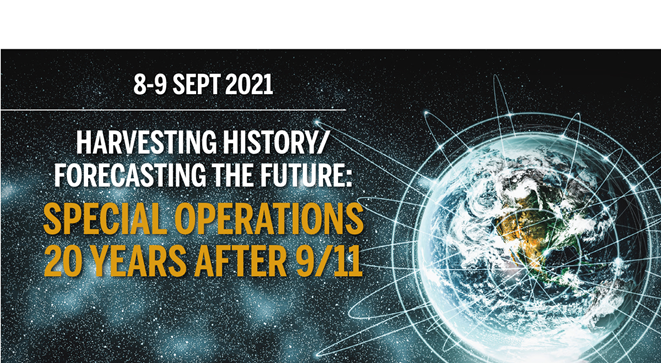About JSOU
Popular Resources
Upcoming Courses
*Continuous Learning (CL) courses are not shownJoint Special Operations Forces Senior Enlisted Academy
Countering Weapons of Mass Destruction Foundations Course
Countering Weapons of Mass Destruction Foundations Course
Recent Publications
Special Operations Research Topics 2026
Mission or Meaning? Rethinking the Identity Crisis in U.S. Army Special Forces
Foreseeing Inroads to Instability: JNIM’s Expansion in West Africa
About JSOU
Popular Resources
Upcoming Courses
*Continuous Learning (CL) courses are not shownJoint Special Operations Forces Senior Enlisted Academy
Countering Weapons of Mass Destruction Foundations Course
Countering Weapons of Mass Destruction Foundations Course
Recent Publications
Special Operations Research Topics 2026
Mission or Meaning? Rethinking the Identity Crisis in U.S. Army Special Forces
Foreseeing Inroads to Instability: JNIM’s Expansion in West Africa
About this event
For the past two decades the United States has largely focused on wars in Afghanistan, Iraq, and counterterrorism operations in response to the 9/11 attacks. Although the U.S. has adjusted its focus away from these conflicts and towards strategic competition, the national security institutions executing the policy change have been shaped by the Global War on Terror (GWOT) and the operational environment it produced. With the rebalance towards strategic competition, SOF practitioners and their partners must appreciate how the recent past shapes the present and forecast what changes are required to be effective in the future compound security environment. Embracing this reality, JSOU's 4th quarter, FY21 "Future of SOF" Virtual Forum will reflect on two important factors that shaped the GWOT operational environment and will continue to shape the compound security environment: the expansion of the SOF/IC relationship and the technologies that inform and enable operations.
Agenda
Essential
-
JSOU Strategic Plan.pdf
-
JSOU-NEXT_White Papers_Aug2020.pdf
-
JNEXT_Learning PathwaysInAction_Primer_June2021.pdfThe Joint Special Operations University has created new learning pathways, directly linked to, and supporting, Joint Special Operations Forces core competencies. The pathways are realized via a series of programs (or “vignettes”) selected to meet COCOM client priorities, supporting research and analysis, curriculum improvement, tangible products, and enhanced partnerships across the Joint, Interagency, Intragovernmental, Multination and Commercial enterprise
-
Program.pdf
Read Ahead
-
China Military Power Report_DoD_2020.pdf
-
Special Ops Technology_Defense One_2021.pdf
-
SOF Enterprise Org Chart_2021.pdf
-
China Military Over 20 Years_DoD_2020.pdf
-
Stone_AIintheIC_MoneyisNotEnough_JustSecurity_July2021.pdf
-
China Strategy Exsum_SecDef_2020.pdf
-
Polymeropoulos_TheThreeRs_ACaseOfficerPerspectiveOnFutureCIA-SpecialOperationsForcesRelations_WashingtonExaminer_April2021.pdf
-
Vergun_SpecialOperationsStrivestoUsethePowerofAI_DefenseNews.pdf
-
JSOU Next White Papers.pdf
-
Small State Defense_Toomse_2015.pdf
-
Katz_IntelligenceEdge_CSIS_April2020.pdf
-
Shultz_TransformingUSIntelligenceforIrregularWarfare_TF714inIraq_ForwardbyGenVotel_April2020_ISBN_9781626167643.pdf
-
Rusian Special Ops_Marsh_2017.pdf
-
Intel Support to SOF_JSOU Pub_Longshore_2020.pdf
-
Roff_UncomfortableGroundTruths_PredictiveAnalyticsandNationalSecurity_ForeignPolicy_Nov2020.pdf
-
Polymeropoulos_ClarityinCrisis_LeadershipLessonsFromtheCIA_June2021_ISBN9781400223886.pdf
-
Posture Statement of General Richard D. Clarke, USA Commander, United States Special Operations Command Before the 117th Congress Senate Armed Services Committee March 25, 2021.pdf
-
RAND_MilitaryApplicationsofAI_EthicalConcerns_2020.pdf
-
Zegart_SpiesLiesandAlgorithms_Jan2022_ISBN_9780691147130.pdf
-
Pfaff_EthicsofAcquiringDisruptiveMilitaryTechnologies_TexasNationalSecurityReview_3_1.pdf
-
Zorri and Berezovski, Big Data Conflict Forecasting Operationalizing the Data Science Team, JSOU Press, June2021.pdf
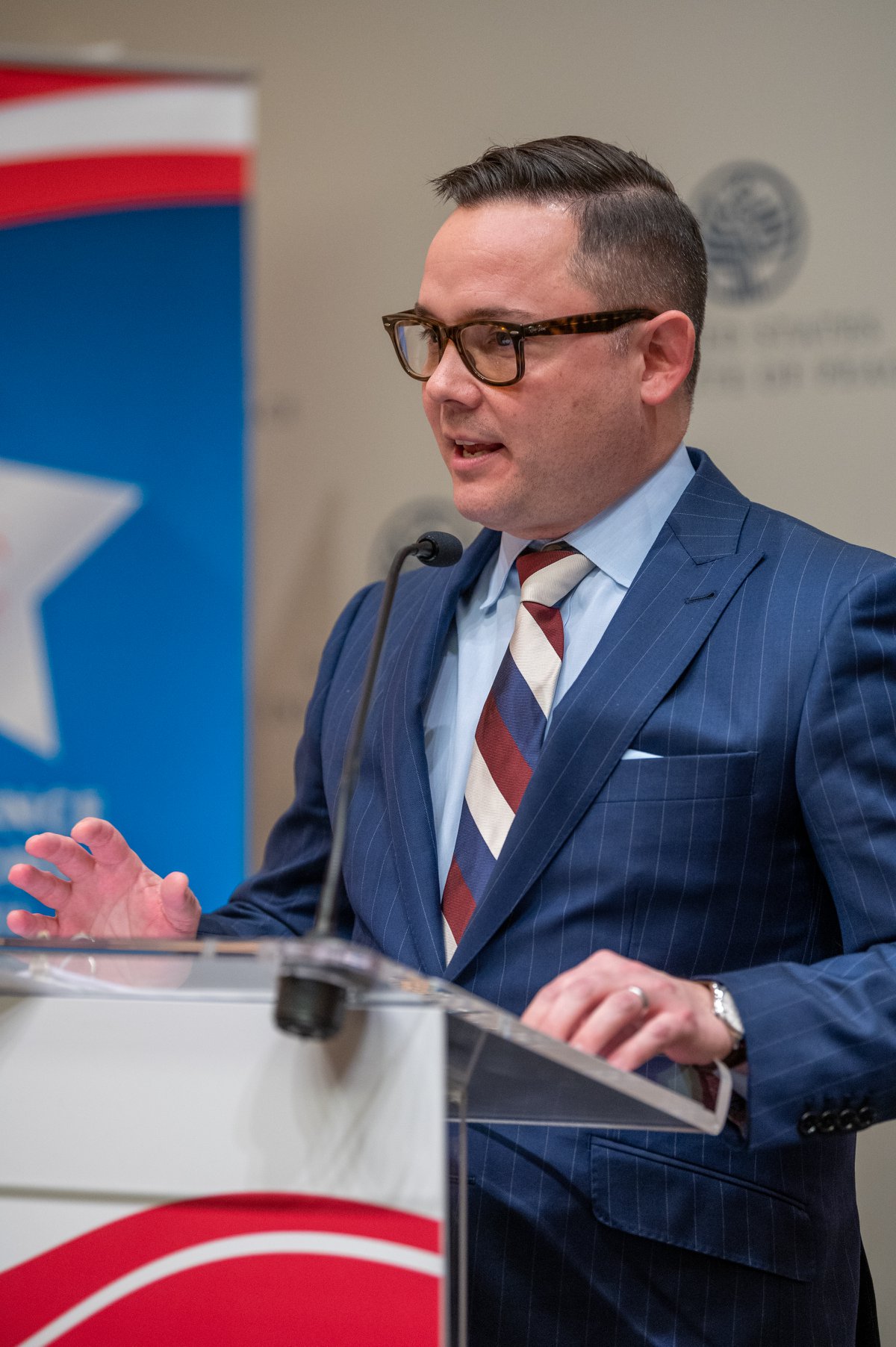
Dr Dave Oakley
David P. Oakley is an
associate professor and department chair at Joint Special Operations University
where he focuses on intelligence studies. He served twenty-two years as
a national security professional within the U.S. Army, Central Intelligence
Agency, and the U.S. National Counterterrorism Center. His last assignment in
the U.S. Army was as an assistant professor at National Defense University’s
College of International Security Affairs in Washington, D.C where he served
from 2016-2021.
Dave is a Visiting
Research Fellow in the Department of War Studies at King's College London and
is on the editorial boards for Intelligence and National Security and the Special
Operations Journal.
Professional
associations: American Historical
Association, American Political Science Association, Association of Former
Intelligence Officers, International Association for Intelligence Education,
International Intelligence History Association, International Studies
Association, OSS Society, Term Member Council on Foreign Relations (2013-18)
Qualifications
·
Ph.D.,
Kansas State University: Security Studies (2016)
·
Master
of Military Arts and Science (MMAS), United States Army’s School of Advanced
Military Studies: Theater Operations (2013)
·
MMAS.,
U.S. Army’s Command and General Staff College: Conflict and Security Studies
(2012)
·
MPA,
University of Oklahoma: Public Administration (2005)
· BA., Pittsburg State University: Political Science (1998)
Research
Interests
· Intelligence
Studies
· Strategy and
Policy
· National
Security Cultures
· Civil/Military
Relations
Publications
Books
Chapters in Edited
Books
· “Organizing for the ‘Gray Zone’ Fight: Early Cold War Realities and the CIA’s Directorate of Operations,” In Thomas A. Marks and Kirklin J. Bateman (Eds.), Perspectives on the American Way of War: The U.S. Experience in Irregular Conflict, Routledge Press. 2020.
Reports
· "Partners or Competitors?: The Evolution of the DoD/CIA Relationship since Desert Storm and its Prospects for the Future,” Joint Special Operations University Report 14-2. May 2014.
Journal
Articles
· “Perfection of Process Does Not Equal Perfect Understanding,” Military Review. January/February 2015.
· “Adapting
to Change: Strategic Turning Points and the CIA/DoD Relationship,” InterAgency Journal. 5(1), Winter 2014, 3-11.
· “Ten Years of GWOT, the Failure of Democratization and the Fallacy of
Ungoverned Spaces” (co-authored with Pat Proctor), Journal of
Strategic Security. 5
(1): 1-14.
· “Taming the Rogue Elephant?,” American Intelligence Journal. Winter 2008/2009, 61-67.
Other Publications
Email:
david.oakley@jsou.edu
Website: https://www.davidpoakley.com
Twitter: @davidpoakley
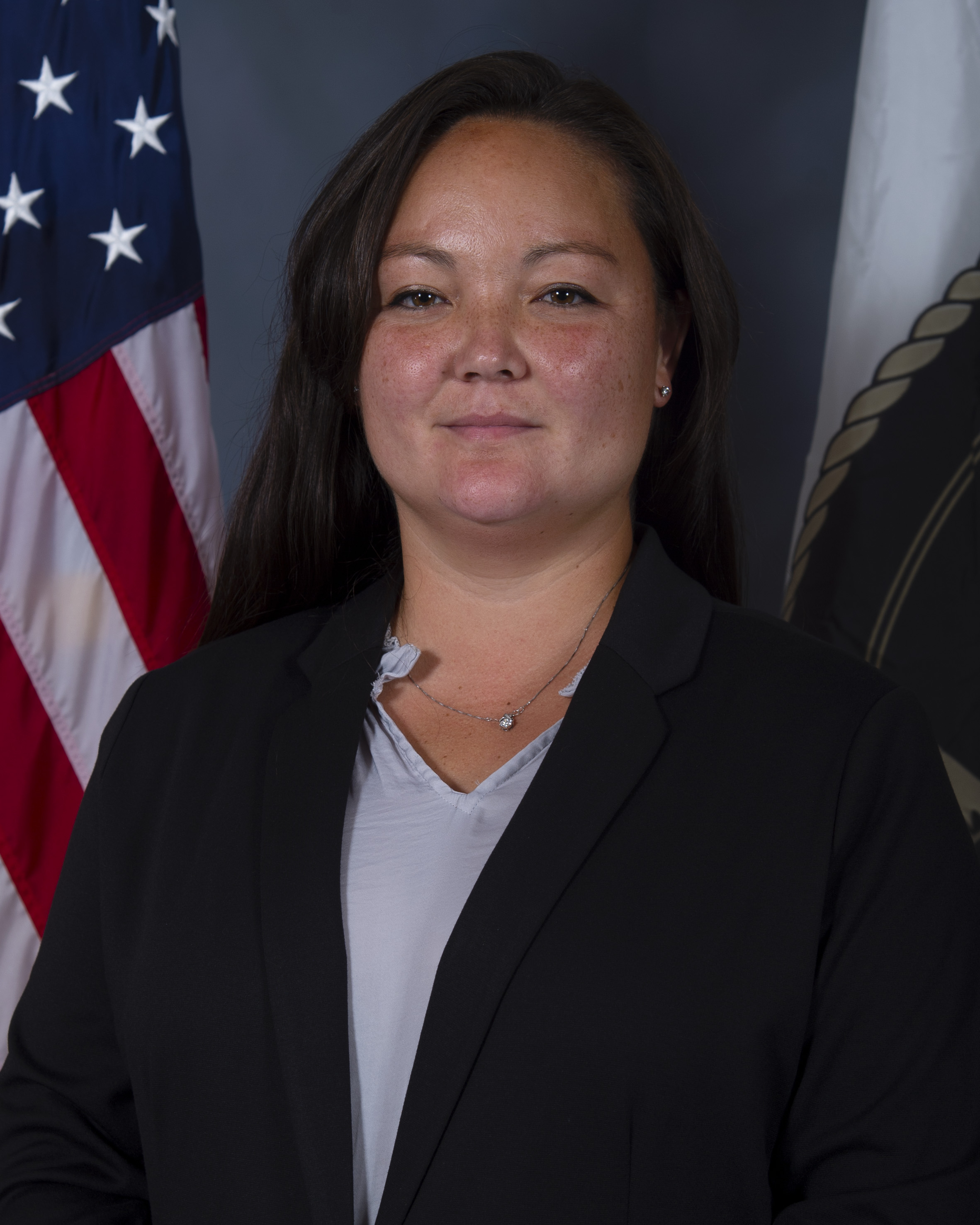
Amanda Wenk-Butler
Dr. Amanda Wenk-Butler has supported Joint Operations for over 13 years as an all-source intelligence technician, intelligence curriculum developer, instructor, all-source analyst, and subject matter of expert of intelligence tools and applications.
Her military experience includes All Source Intelligence Technician supporting the 143D Sustainment Command- Expeditionary (ESC) based in Orlando, FL, Productions Manager supporting Collection Management Troop, Joint Targeting Squadron in Joint Intelligence Brigade (JIB) with the Joint Special Operations Command (JSOC), senior instructor and a Director of Instructors (DOI) with the 6th/108th MI BN, all source intelligence analyst with the 82nd Airborne Division and the 2nd Stryker Calvary Regiment. Dr. Wenk-Butler has several deployment rotations as Collections Manager of Regional Command South (RC-South), senior all source analyst to interrogations at Pasab Detention Facility, Fusion and Targeting analyst in support of OPERATION ENDURING FREEDOM.
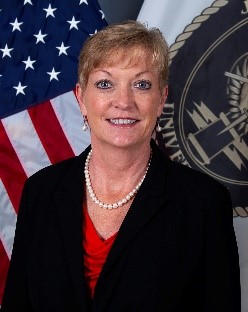
Amy Lonas
As the Dean, College of SO/LIC3, Dr. Amie Lonas serves as the executive head of the teaching faculty and as the chief of academic affairs for JSOU. She is responsible for the content and quality of the College’s curricula, to include the currency, relevancy and pedagogical innovation in all courses and modalities. Prior to arriving at JSOU, Dr. Lonas served as the Dean of Faculty and Academic Programs at the Joint Forces Staff College, overseeing two JPME II programs, one of which awarded a master’s degree. Dr. Lonas previously served as the Director of Schools for Franklin County, Tennessee and prior to this position, she served for five years at the Joint Special Operations University (JSOU) where she held the position of Dean of Academics and acting Vice President for Academic Affairs. A native of Dayton, Tennessee, Dr. Lonas completed her Doctor of Education at Vanderbilt University, specializing in Educational Leadership. Dr. Lonas also served as an Air Force officer in the Tennessee Air National Guard.
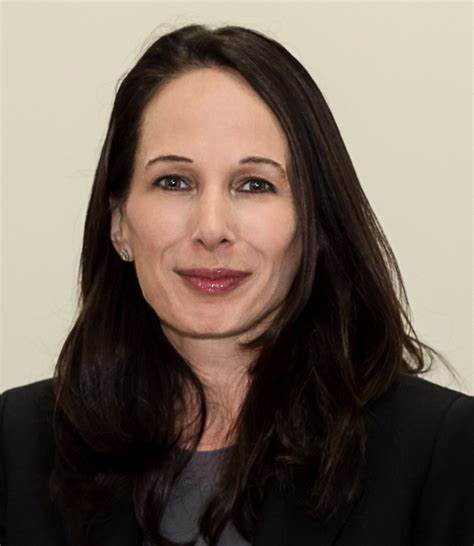
Amy Zegart
Amy Zegart is the Morris Arnold and Nona Jean Cox Senior Fellow at the Hoover Institution and Professor of Political Science (by courtesy) at Stanford University. She is also a Senior Fellow at Stanford’s Freeman Spogli Institute for International Studies, Chair of Stanford’s Artificial Intelligence and International Security Steering Committee, and a contributing writer at The Atlantic. She specializes in U.S. intelligence, emerging technologies and national security, grand strategy, and global political risk management.
he author of five books, Zegart’s award-winning research includes the leading academic study of intelligence failures before 9/11 — Spying Blind: The CIA, the FBI, and the Origins of 9/11 (Princeton 2007). She co-edited with Herbert Lin Bytes, Bombs, and Spies: The Strategic Dimensions of Offensive Cyber Operations (Brookings 2019). She and Condoleezza Rice co-authored Political Risk: How Businesses and Organizations Can Anticipate Global Insecurity (Twelve 2018) based on their popular Stanford MBA course. Zegart’s forthcoming book is Spies, Lies, and Algorithms: The History and Future of American Intelligence (Princeton 2022). Her research has also been published in International Security and other academic journals as well as Foreign Affairs, the New York Times, Washington Post, and Wall Street Journal.
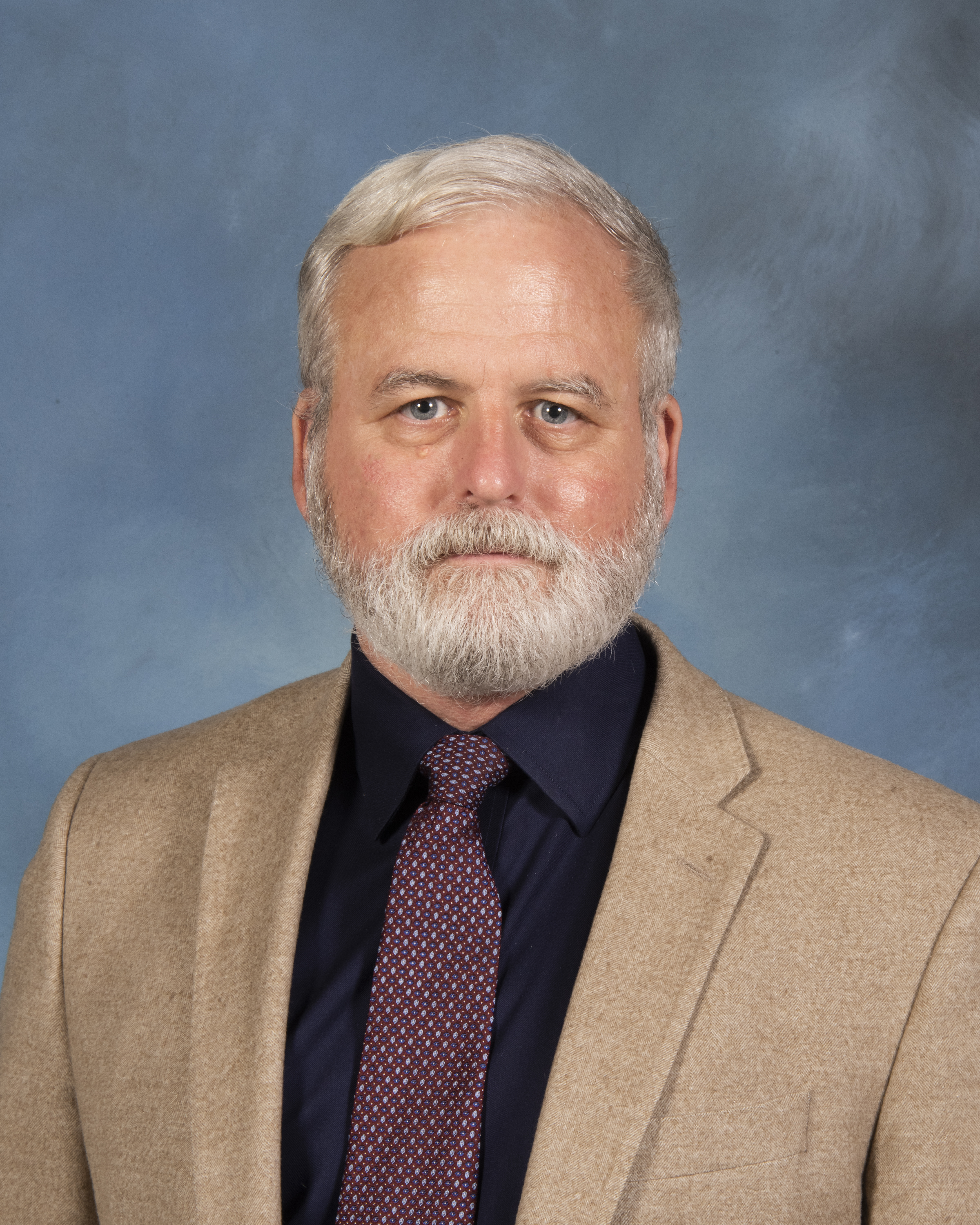
Anthony Pfaff
DR. C. ANTHONY PFAFF (Colonel, U.S. Army, Ret.) is currently the research professor for Strategy, the Military Profession and Ethic at the Strategic Studies Institute and a Senior Non-resident Fellow at the Atlantic Council. In this capacity, he has written extensively on military professional ethics. A retired Army foreign area officer for the Middle East and North Africa, Dr. Pfaff served as Director for Iraq on the National Security Council Staff. His last active duty posting was Senior Army and Military Advisor to the State Department from 2013-2016, where he served on the Policy Planning Staff advising on cyber, regional military affairs, and the Middle East. Prior to taking the State Department position, he served as the Defense Attaché in Baghdad, the Chief of International Military Affairs for US Army Central Command, and as the Defense Attaché in Kuwait. He served twice in Operation IRAQI FREEDOM, once as the Deputy Chief of Intelligence for a Joint Special Operations Task Force and as the Senior Military Advisor for the Civilian Police Assistance Training Team. He also served as the Senior Intelligence Officer on the Iraq Intelligence Task Force and as a UN observer along the Iraq-Kuwait border. Dr. Pfaff has a bachelor’s degree in Philosophy and Economics from Washington and Lee University; a master’s degree in Philosophy from Stanford University, with a concentration in Philosophy of Science; a master’s in National Resource Management from the Industrial College of the Armed Forces; and a Doctorate in Philosophy from Georgetown University.
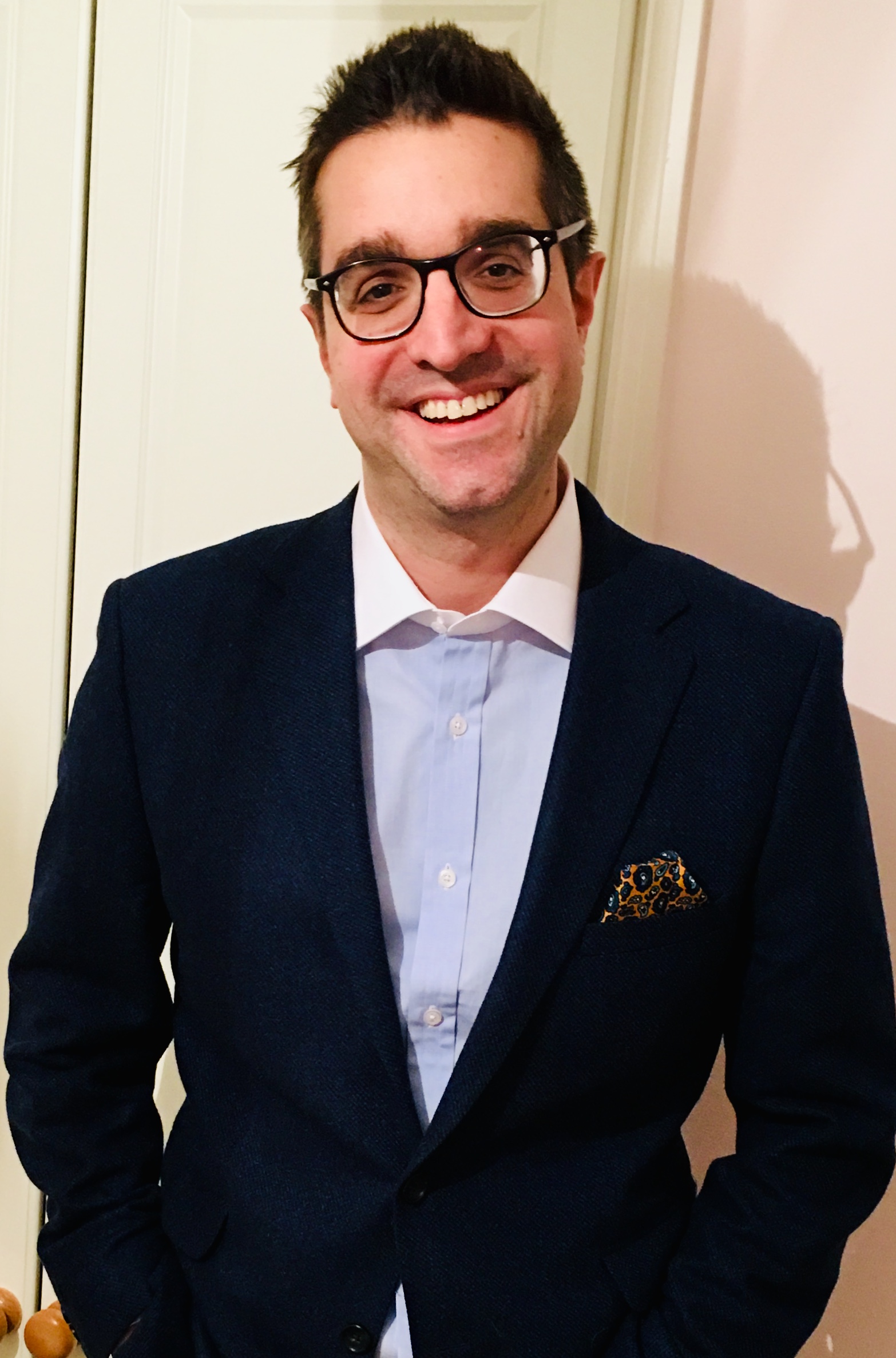
Christopher Moran
Christopher Moran is Professor of US National Security in the Department of Politics and International Studies at the University of Warwick, UK. His books include Company Confessions: Secrets, Memoirs and the CIA (St. Martin's Press, 2016) and Classified: Secrecy and the State in Modern Britain (Cambridge University Press, 2013) which won the 2014 St. Ermin's Intelligence Book of the Year Award. He is currently writing a large history of Richard Nixon, Henry Kissinger and the CIA.
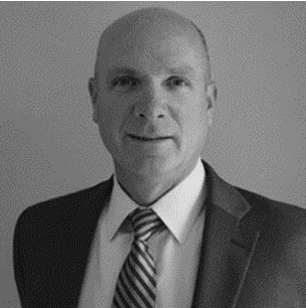
Dave Dudas
Dave is a national security professional and educator with a concentrated focus on irregular warfare at the nexus of policy, strategy, and operational implementation. He served as a special advisor in the Commander’s Action and Initiatives Group, U.S. Central Command, Tampa, Florida, under Generals David Petraeus, James Mattis, and Lloyd Austin. He was an Associate Dean of Curriculum and Associate Professor at the College of International Security Affairs, National Defense University, Washington, D.C. In this role, he instructed U.S. and International Counter-terrorism Fellows to understand and address the social, political, economic, and security dynamics that shape today’s threat environment. At West Point, Dave was an Assistant Professor of International Relations and was Executive Officer for the Superintendent’s Annual Leadership Conference. He has published several articles to include “Nature of the Public Diplomacy Challenge,” Eisenhower National Security Studies, and co-authored a book chapter, “Recanting the Ghosts of Vietnam,” in Handbook of Defense Politics (Routledge). Dave is a frequent speaker in the U.S. and abroad on international affairs, counterterrorism, and leadership
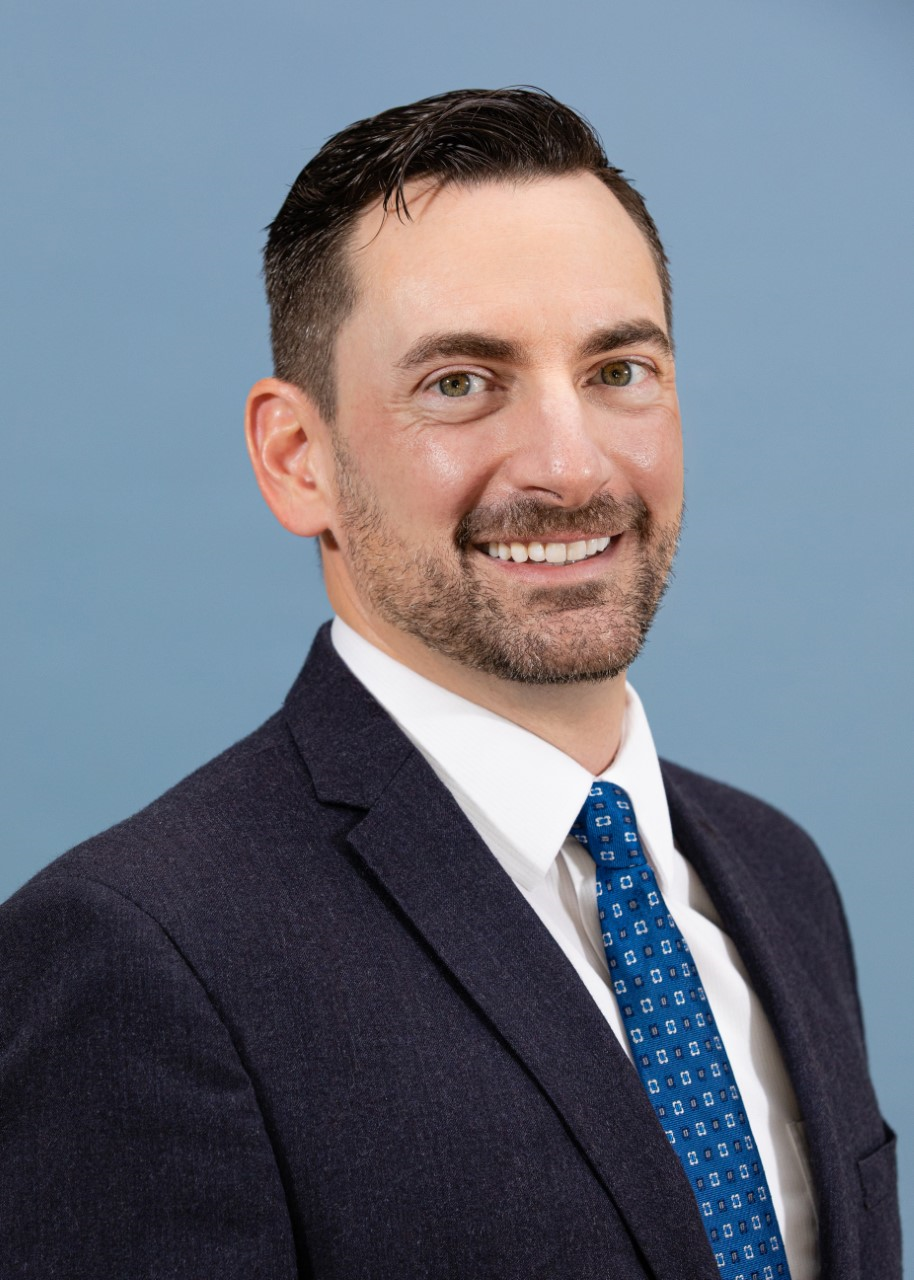
Dave Ellis
Dr. David C. Ellis is a Resident Senior Fellow at JSOU (government contractor employed by METIS Solutions). He holds a doctorate in international relations and comparative politics from the University of Florida. Dr. Ellis’s research on democratization and development in identity conflict spans over two decades. His interests in peacekeeping, conflict resolution, development, and atrocity in ethnic conflict focused his doctoral research on identity, social movements, organization and social learning theory, and economic growth theory. Dr. Ellis served as an intelligence analyst in the USSOCOM J2, deployed to Afghanistan in support of Special Operations Forces from 2010–2011, and joined JSOU in 2016. His current research focuses on the intersection of complexity, organizational learning within the special operations community, and integrated campaigning.
David Wigmore
Assistant Professor David Wigmore, currently visiting faculty at the National Defense University (NDU) in Washington, DC is in the 21st year of a career in the US Intelligence Community (IC) that spans operations support, policy-impactful analysis for the President, Cabinet, and NSC, and support to US border and visa screening, straddling the space between foreign intelligence and national security at home. This includes work at the Departments of the Navy and State, CIA, IC Joint Duty at DHS, and the Office of the Director of National Intelligence (DNI), where he is a DNI and National Counterterrorism Center plank owner, as well as with other US and international partners. This involved short and longer TDYs in many countries. David was a 2011 Galileo Finalist (an IC-sponsored call for ideas) for an idea that led to a multi-million dollar screening program, since expanded; in 2016, David also helped inspire and put together the Center for the Study of Intelligence-hosted conference Data Driven Intelligence where he also spoke; he was invited to attend the Innovators Summit: Solving the Red Queen Problem in Silicon Valley in 2017, and was a 2018 Exploration Fund recipient of $100,000 in seed money to explore a facet of technological innovation. A former Fulbright Scholar, David holds an MA from NDU, a Certificate in Public Policy from the Kennedy School of Government at Harvard University, Executive Education, and an Executive Scholar Certificate from the Kellogg School of Management at Northwestern University. He is twice published in the CIA/IC professional journal Studies in Intelligence, and once each in the Tuft’s University Fletcher Forum of World Affairs and Joint Force Quarterly and has spoken at CIA, DIA, and NSA conferences.
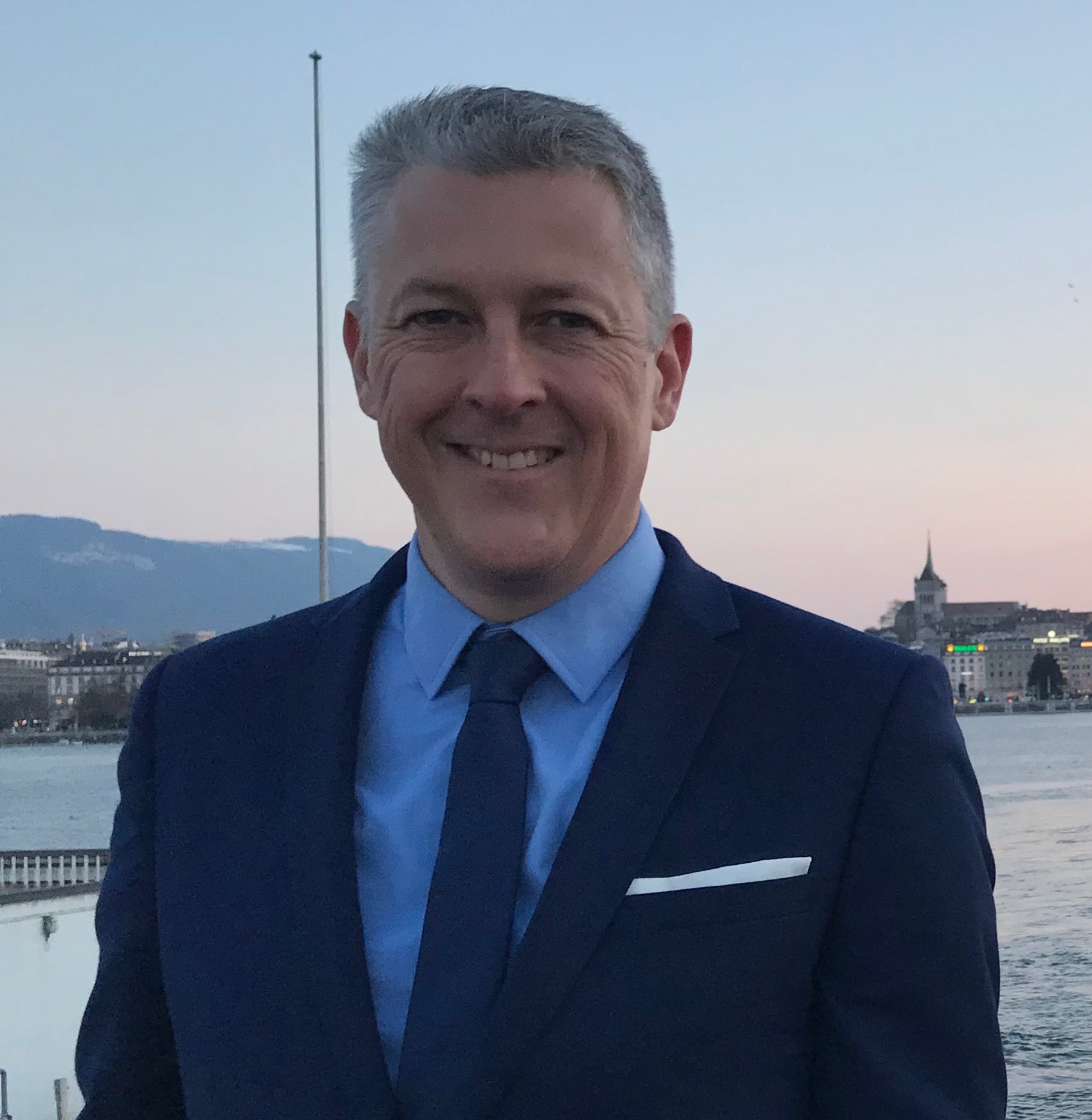
Deane Baker
Dr Deane-Peter Baker is an Associate Professor of International and Political Studies in the School of Humanities and Social Science at UNSW Canberra, where he is co-Convenor (with Professor David Kilcullen) of the UNSW Canberra Future Operations Research Group. He is also a Senior Visiting Research Fellow in the Kings College London Centre for Military Ethics, and a Research Associate in the Centre for Applied Ethics at Stellenbosch University. His work focuses mainly on the ethics of armed conflict. He served as a panellist on the International Panel on the Regulation of Autonomous Weapons (IPRAW) and is co-convener of ‘The Canberra Group’, an independent and international group of scholars and practitioners who together developed the international ‘Guiding Principles for the Development and Use of Lethal Autonomous Weapons Systems’. His current area of focus is on ethics and special operations, and he is a regular consultant to Australia’s Special Operations Command. Recent publications include Morality and Ethics at War: Bridging the Gaps Between the Soldier and the State (Bloomsbury Academic 2020), Citizen Killings: Liberalism, State Policy and Moral Risk (Bloomsbury Academic 2016), and Should We Ban Killer Robots? (Polity Press forthcoming 2022).
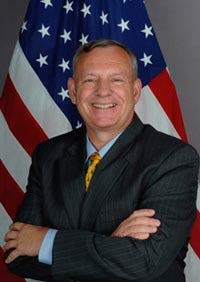
Dell Dailey
Dell Dailey was born into an Army Family. He followed suit and graduated from US Military Academy in 1971. His branch was infantry and completed Airborne and Ranger school. With that as a start, he was assigned into infantry units and later aviation units. With a background in both Ranger and special ops aviation he commanded four companies, two battalions and and an aviation regiment. Further time in special operations lead to command of Joint Special Operation Command as a Major General, at the start of 9/11. Later assignments had him in continued special operations units culminating with Director of the Center of Special Operations at SOCOM. He retired with 40 years in uniform. Following that, he became the State Department Ambassador at Large for the Combatting Terror office and reported directly to Secretary's Rice and Clinton. Following government service he started a consulting firm and has been doing it for 12 years. In his free time he ran with the bulls in Pamplona, led a fifty mile hike for Boy Scouts, and worked on an Israeli Kibbutz. He is happily married to his wonderful wife who raised their five fantastic children during much of his absence.
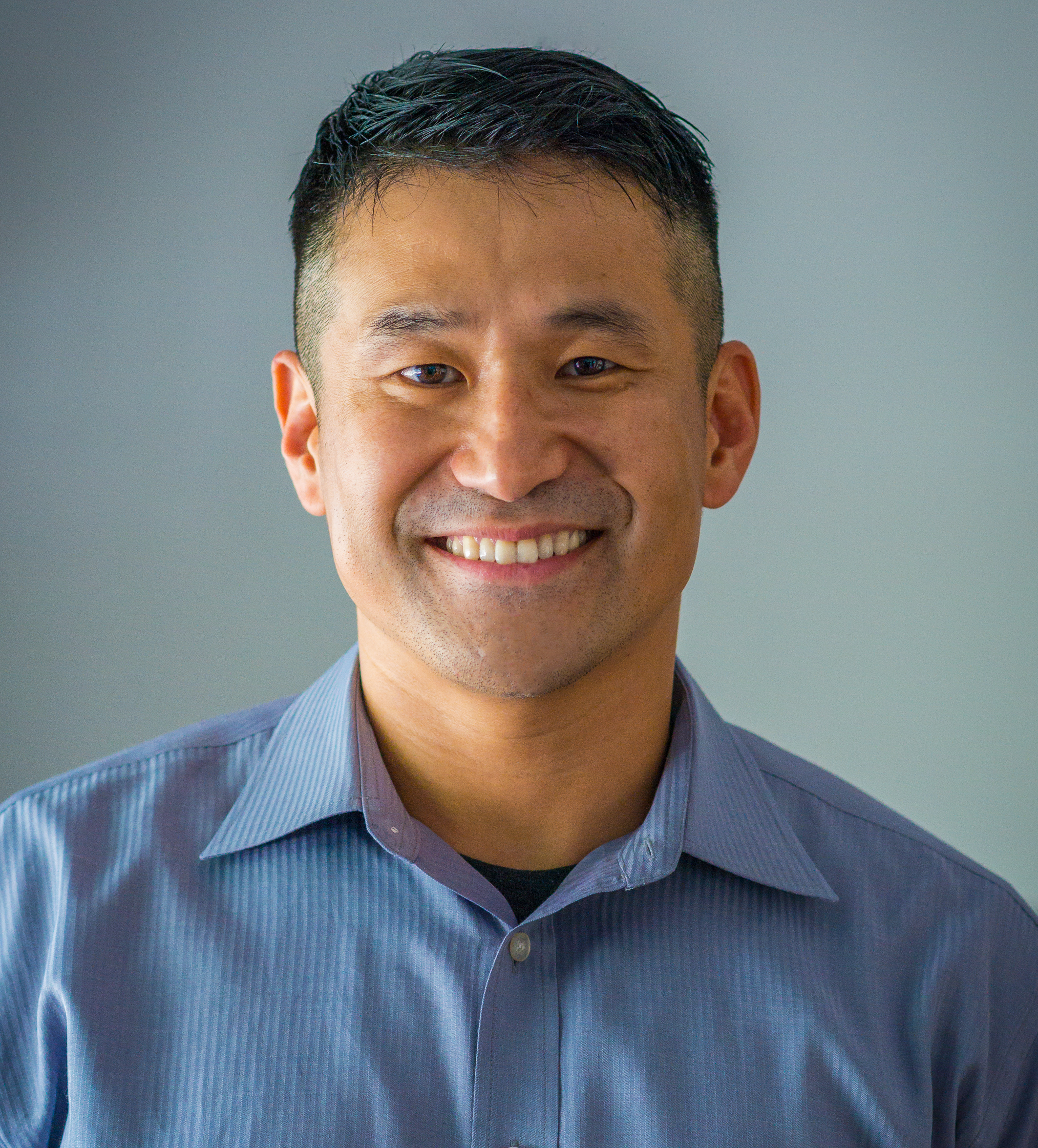
Doowan Lee
Doowan Lee is a senior advisor to the Institute for Security and Technology, a think tank in Silicon Valley working closely with the national security community on key strategic issues such as cyber, information warfare, and special operations. He is also the founder and CEO of a venture-backed tech startup leveraging AI technologies on data analytics to mitigate online extremism and disinformation while empowering civil society and supporting national security. Before founding his startup, he taught at the Naval Postgraduate School for more than 11 years as a faculty member and principal investigator where he developed and executed operational and communications technology projects with federal R&D agencies to support the U.S. government’s efforts to combat violent extremist networks and authoritarian regimes. In particular, he has closely worked with the US Special Operation community to support overseas operations. Central to this work is a focus on how China and Russia exploit social media and emerging technologies to undermine organic political processes. Doowan is also an adjunct professor of politics at the University of San Francisco.
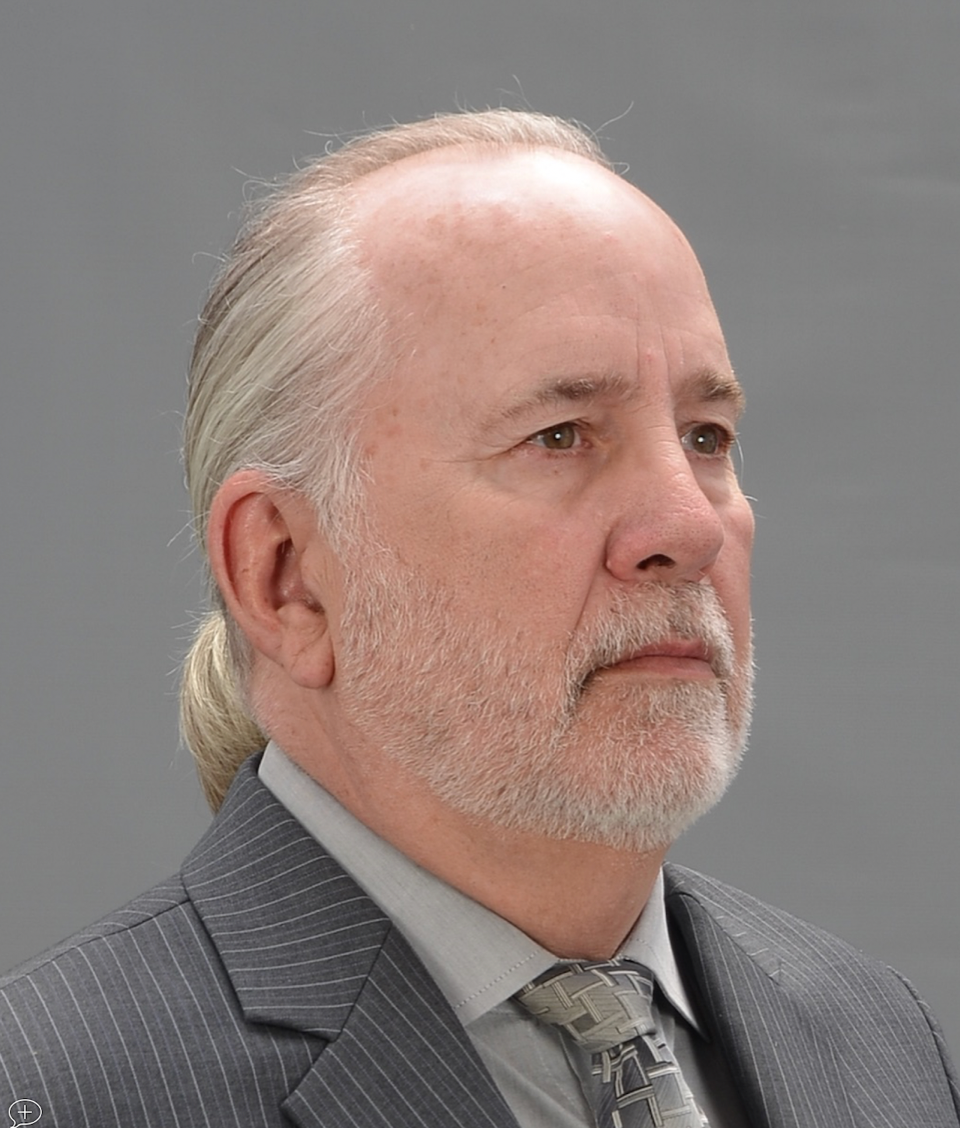
Doug Wise
Douglas H. Wise retired from CIA as a member of CIA’s Senior Intelligence Service in August 2016 completing nearly three decades of Intelligence Community service. He finished his career with CIA in a Joint Duty Assignment as the Deputy Director of the Defense intelligence Agency. He serves on numerous corporate boards and provides management/leadership coaching/mentoring to the leadership teams of large corporations. He also engages on risk, security and cyber threats for senior corporate executives. He is a technical and leadership advisor to Los Alamos National Laboratory. In addition, he provides leadership and tradecraft training to select units of USSOCOM and supports U.S. Army TRADOC’s War Fighter Exercises as a Chief of Station role player. He is a Cipher Brief Expert and repeat speaker at Chatham House in London. Doug is a senior member of the Honorary Advisory Board for the International Spy Museum and serves on the Board of Advisors to SpyCraft Entertainment, an innovative start-up connecting the Intelligence Community to the entertainment industry. During his nearly thirty years in CIA’s Clandestine Service, he had the privilege of leading several of the Agency’s most important components at CIA Headquarters and in the field. In the course of multiple field assignments, Doug served four times as a Chief of Station, including a tour as a Chief of Station in Baghdad which was then the largest field station in the Agency’s history. He was also the CIA’s Chief of Operational Training and ran one of CIA’s largest covert action programs. Prior to joining CIA, Doug spent a 20-year career in the U.S. Army in conventional and special operations units (the last 5 of those years on loan to CIA). In addition to receiving a BS from USMA, Doug also received an MS in Physics from Dartmouth College and an MS in Engineering from Dartmouth’s Thayer School of Engineering and did a post-graduate research fellowship at Los Alamos National Laboratory. Doug is the recipient of two prestigious CIA awards, the Donovan Award and the Distinguished Career Intelligence Medal. He is married to Cynthia C. Wise a former FBI Special Agent and has three sons.
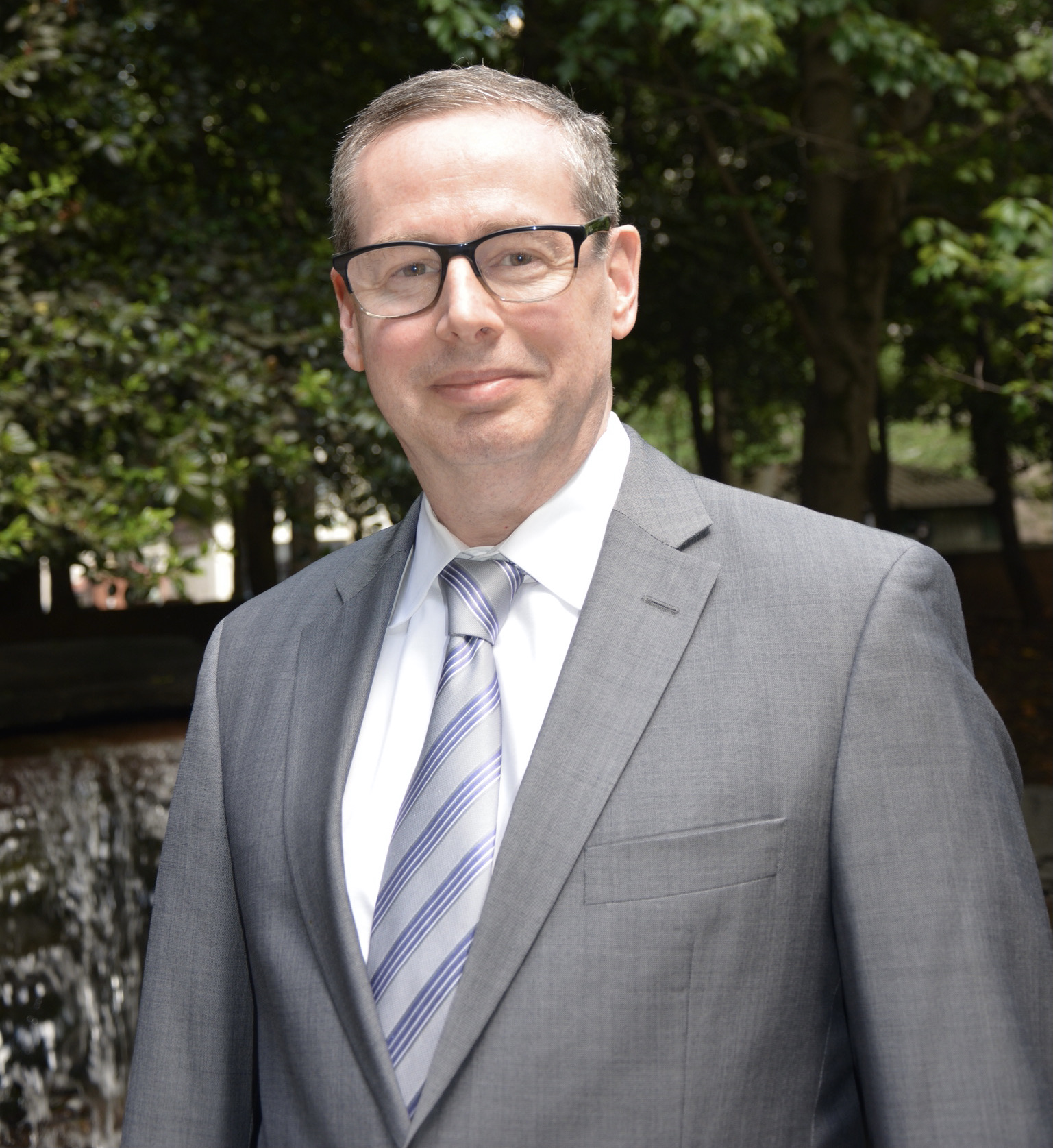
Douglas London
Douglas London retired from the CIA in 2019 after 34 years as a Senior Operations Officer and as CIA’s Counterterrorism Chief for South and Southwest Asia. Mr. London served predominantly in the Middle East, South and Central Asia and Africa and held multiple Chief of Station and Executive Management positions. His CIA subject matter expertise also includes Iran, Cyber and Counterintelligence. Mr. London currently teaches at Georgetown University's Center for Security Studies, is a Non-Resident fellow at the Middle East Institute and author of the forthcoming book, “The Recruiter: Spying and the Lost Art of American Intelligence,” to be published by Hachette Books on September 28, 2021. Follow him on Twitter @douglaslondon5.
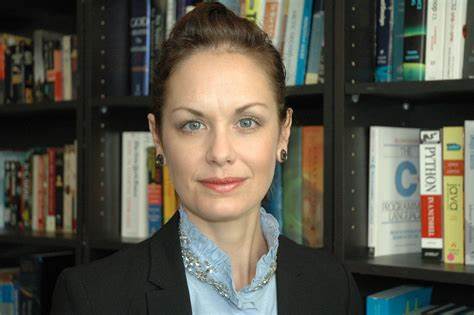
Heather Roff
Heather M. Roff is a nonresident fellow in the Foreign Policy program at Brookings. Her research interests include the law, policy, and ethics of emerging military technologies, such as autonomous weapons, artificial intelligence, robotics, cybersecurity, and more recently quantum, as well as international security and human rights protection. Her recent work focuses on generating normative principles for the use of AI for national defense, as well as particular epistemological issues with AI for defense related applications. She is author of “Global Justice, Kant and the Responsibility to Protect” (Routledge 2013), as well as numerous scholarly articles.
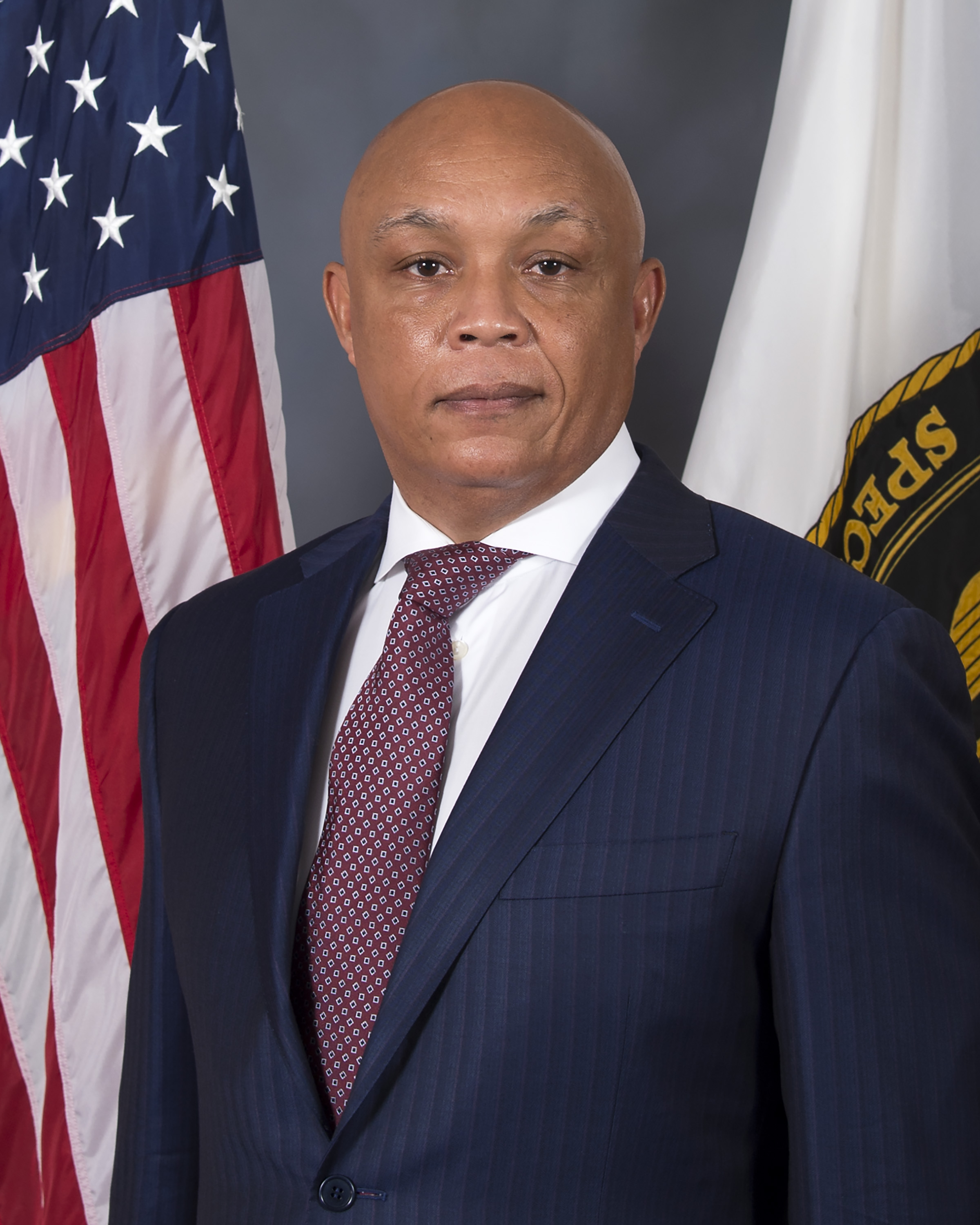
Isaiah Wilson
Dr.
Isaiah (Ike) Wilson III, PhD is the
President of the Joint Special Operations University (JSOU). He is a master
strategist and a leading advocate for change in America’s concepts of and
approaches to security and defense policy, and affairs of war and peace. A
decorated combat veteran, former army aviator, and strategist, he most recently
served as Director (Chief), Commander’s Initiatives Group, for the Commander,
U.S. Central Command. A full professor of political science, Dr. Wilson
formerly served as a professor and academic program director at West Point,
where he also founded the West Point Grand Strategy Program. He has also taught
extensively at the undergraduate and graduate levels at a number of prestigious
colleges and universities, including Columbia University, Yale University,
George Washington University, and the National War College. Prior to his
appointment with U.S. Special Operations Command, Dr. Wilson was the Director
of the U.S. Army War College (USAWC) Strategic Studies Institute (SSI) and
USAWC Press. Dr. Wilson has numerous publications to his credit,
including, Thinking Beyond War: Civil-Military Relations and Why America Fails
to Win the Peace. Dr. Wilson is a life member of the Council on Foreign
Relations and an International Affairs Fellow with New America. He also
serves as a professor of practice with the School of Politics and Global
Studies at Arizona State University.
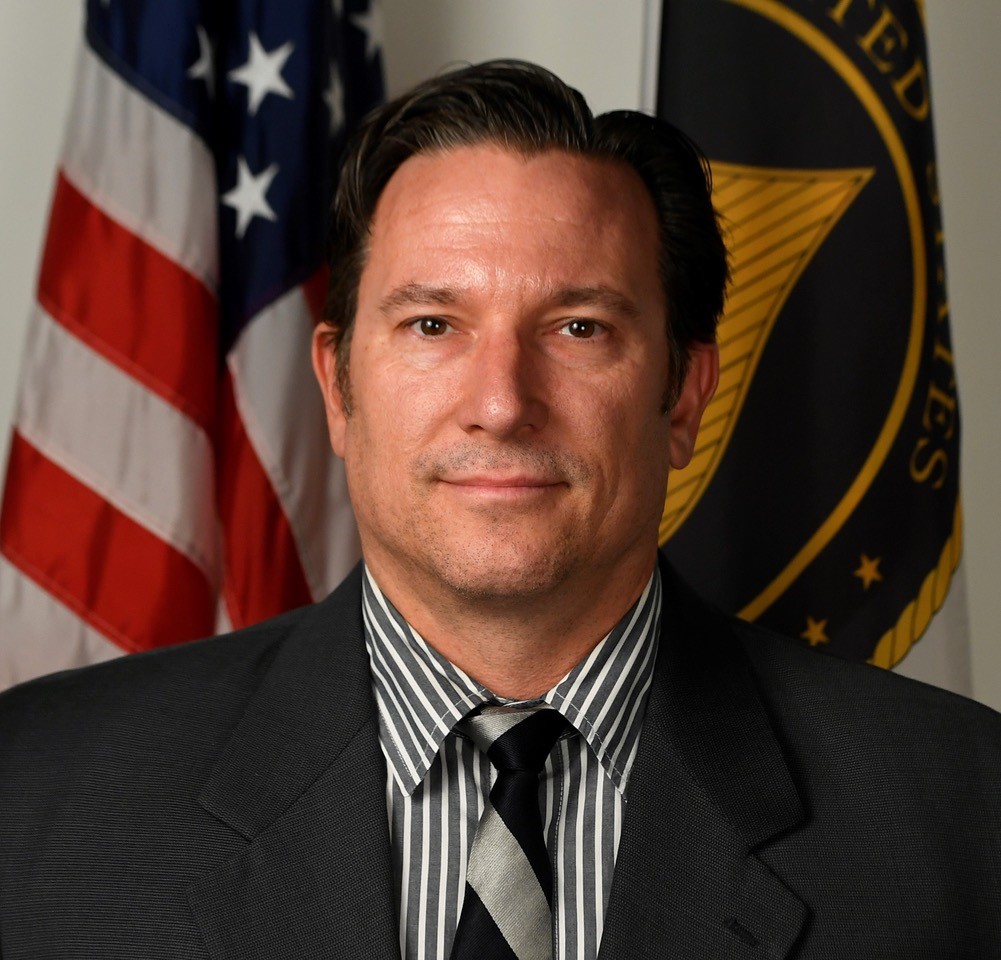
Joseph Long
Dr. Joseph Long is a retired Special Forces officer with operational experience as a Special Forces Detachment Commander and Assistant Operations Officer in the 1st Special Forces Group (Airborne) deploying across the United States Indo-Pacific Command area of responsibility and in support of Operation Enduring Freedom –Afghanistan from 2003-2005. Dr. Long also served as Senior Instructor and Commander in various phases of the Special Forces Qualification Course from 2006-2009, as the Program Director for the Afghan National Army Special Operations Command from 2010-2011, and as the Group S-3 of the Special Warfare Medical Group from 2012-2014 before ending his career as the Director of Special Forces Proponency in 2019. Dr. Long is a 1997 graduate of the United States Military Academy at West Point with a Master’s Degree in Defense Analysis from the Naval Postgraduate School and Doctorate in Executive Leadership from the University of Charleston. His research interests include understanding the role of relational leadership in irregular and unconventional warfare and ethical decision-making in highly complex compound security environments.
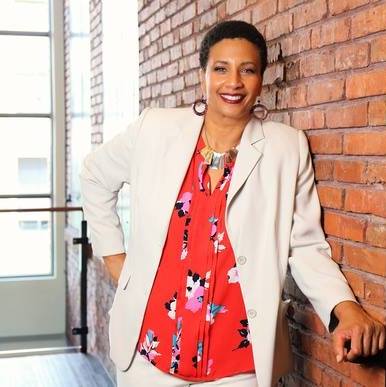
Letitia Haynes
Dr. Letitia Haynes (Dr. Tee), is currently serving as USSOCOM J4 Logistics Instructor. She contributes to the SI&ET learning pathway and helped to establish this pathway while she was a JSOU instructor from 2019 to 2021. Dr. Tee began her SOF career as the first JOC ISR desk officer in 2006 after graduating from the Naval War College with her M.A. degree in Strategic Studies and National Security. Shortly after that, she established USSOCOM’s Joint Reconnaissance Branch as the first Branch Chief and led a small team of 7 subject matter experts in SOF operations and intel for Intelligence, Surveillance, and Reconnaissance (ISR) assets. Later she established SOCCENT’s Biometric program as their first Identity Operations Manager. In this role, Dr. Tee was part of a small team of other government agency members that deployed to remote areas of Southwest Asia coordinating and working with international law enforcement and embassy personnel. As a strategic planner, Dr. Tee sustained project implementation for her team’s efforts and provided analytical intelligence support using Joint Operations Planning Procedures. In addition, Dr. Tee forward deployed to Afghanistan and worked combined joint efforts over several posts as an intel analyst and certified knowledge manager. Her final assignment was in the Joint Intelligence Support Element (JISE) at CJSOTF-A. Dr. Tee’s interest spreads across Joint SOF Integration, Intelligence, and Strategic Operational Planning. Dr. Tee is also a graduate of the Naval Postgraduate School, where she earned her M.S. degree in Information Technology Management. Additionally, she is a college math and business instructor. She currently serves as an adjunct instructor with State College of Florida in their Business Department since 2018.
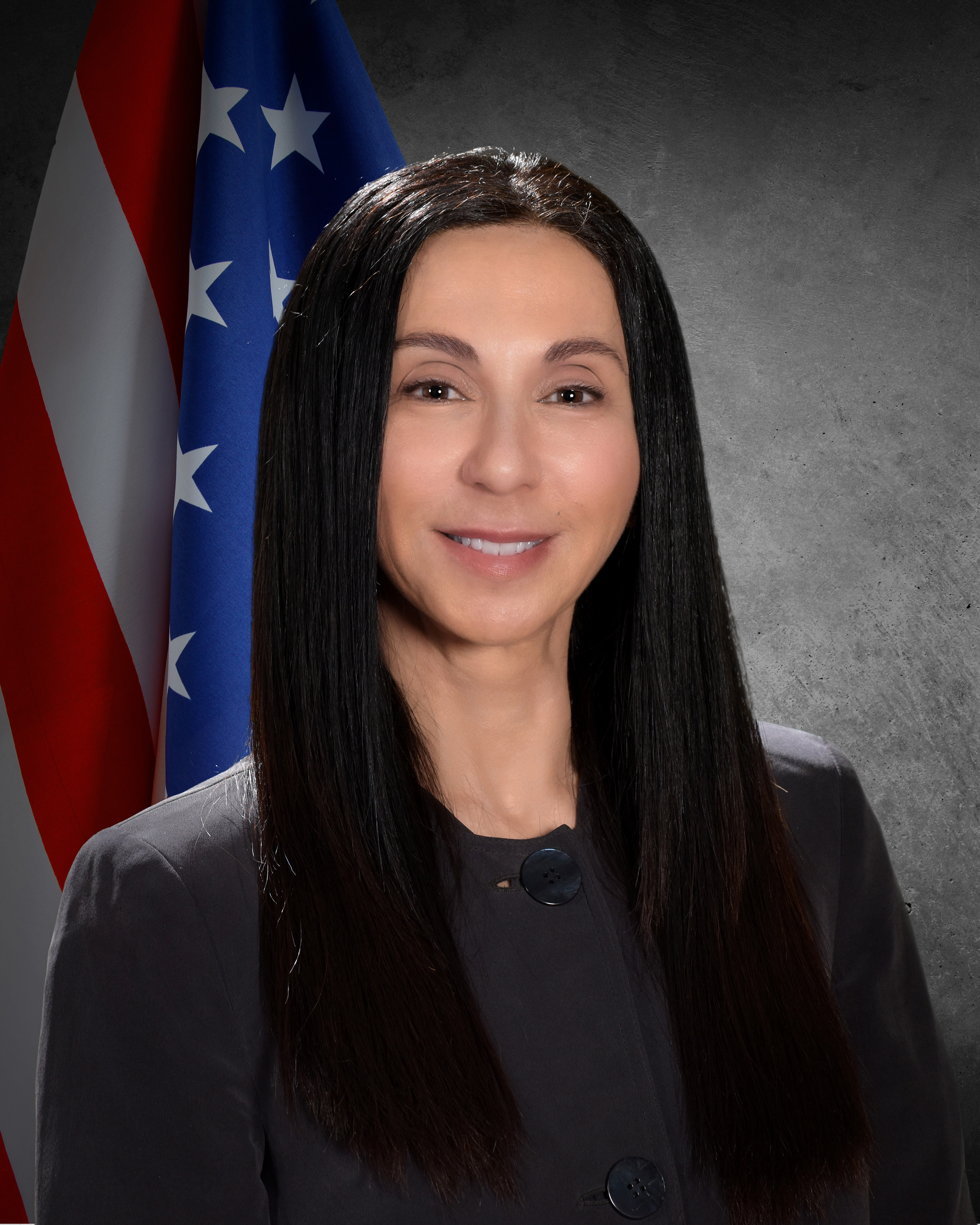
Lilian Alessa
Dr. Lilian “Doc” Alessa is a President’s Professor at the University of
Idaho and is Affiliate Faculty with The Texas A&M and George Mason
University Systems. She has previously served as a Defense Intelligence
Senior Level-equivalent Special Advisor for Advanced Data and
Analytics, through an Intergovernmental Personnel Act (IPA)
arrangement, with the Department of Defense. Additionally, she served
as Deputy Chief of Global Strategies with the Department of Homeland
Security, Office of Strategy, Policy and Plans. She is currently Chief
Scientist with Joint Special Operations University, also providing arctic
expertise to the Department of Defense. She has over 25 years of
experience working with Academic, Federal, State, Local, Tribal and
Territorial partners (FSLTTP) across Canada and the United States,
focused on national security, defense and the resilience of systems,
people and communities.
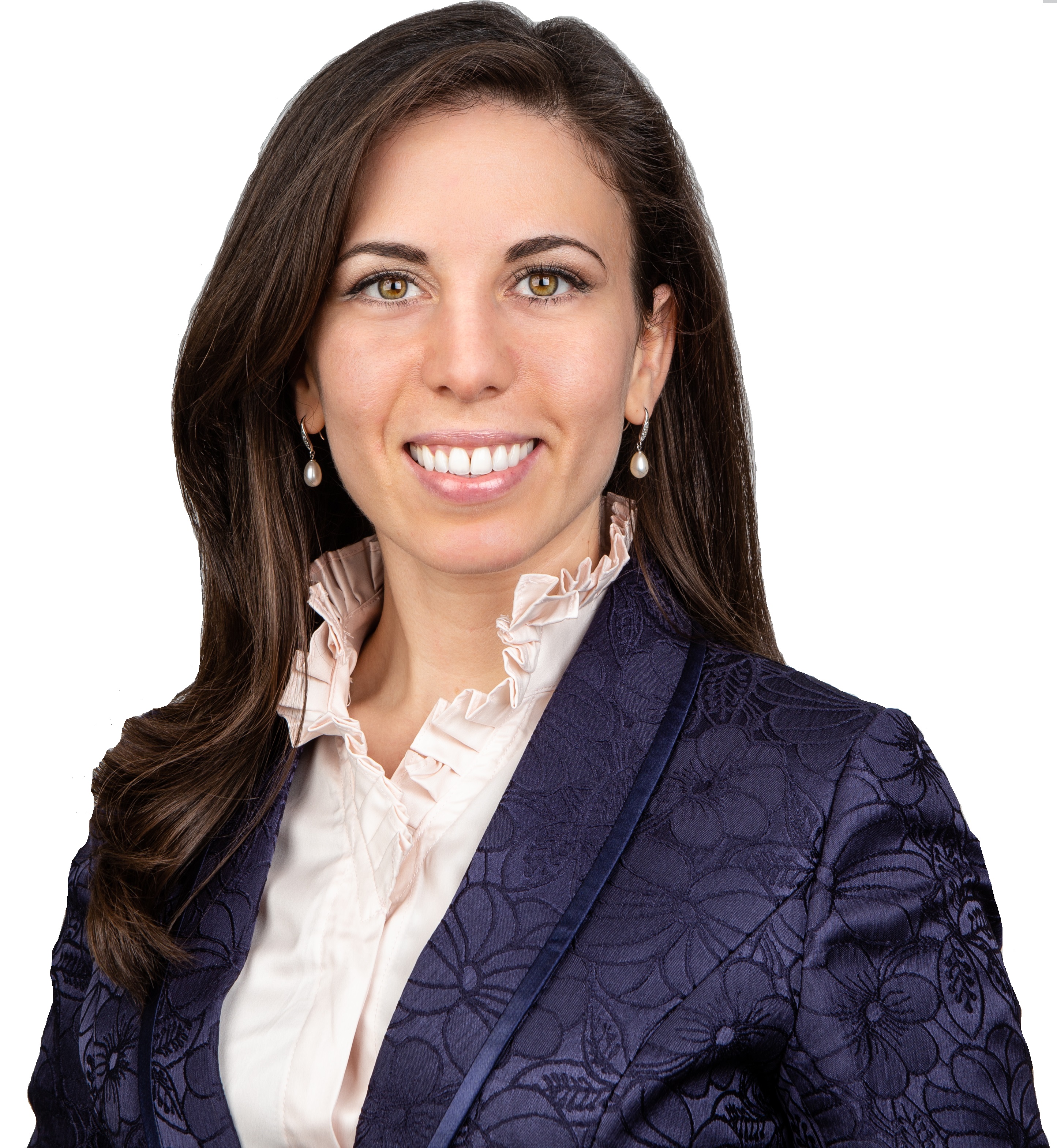
Lydia Kostopoulos
Dr. Lydia Kostopoulos’ work lies in the intersection of strategy, national security and technology. She currently works for the U.S. Special Operations Command at the Joint Special Operations University where her focus is on emerging technologies. She has spoken at the United Nations, NATO, participated in diplomatic programs. Passionate about social tech awareness she makes art about AI and a penta-lingual game on technologies that affect humanity called Sapien 2.0.
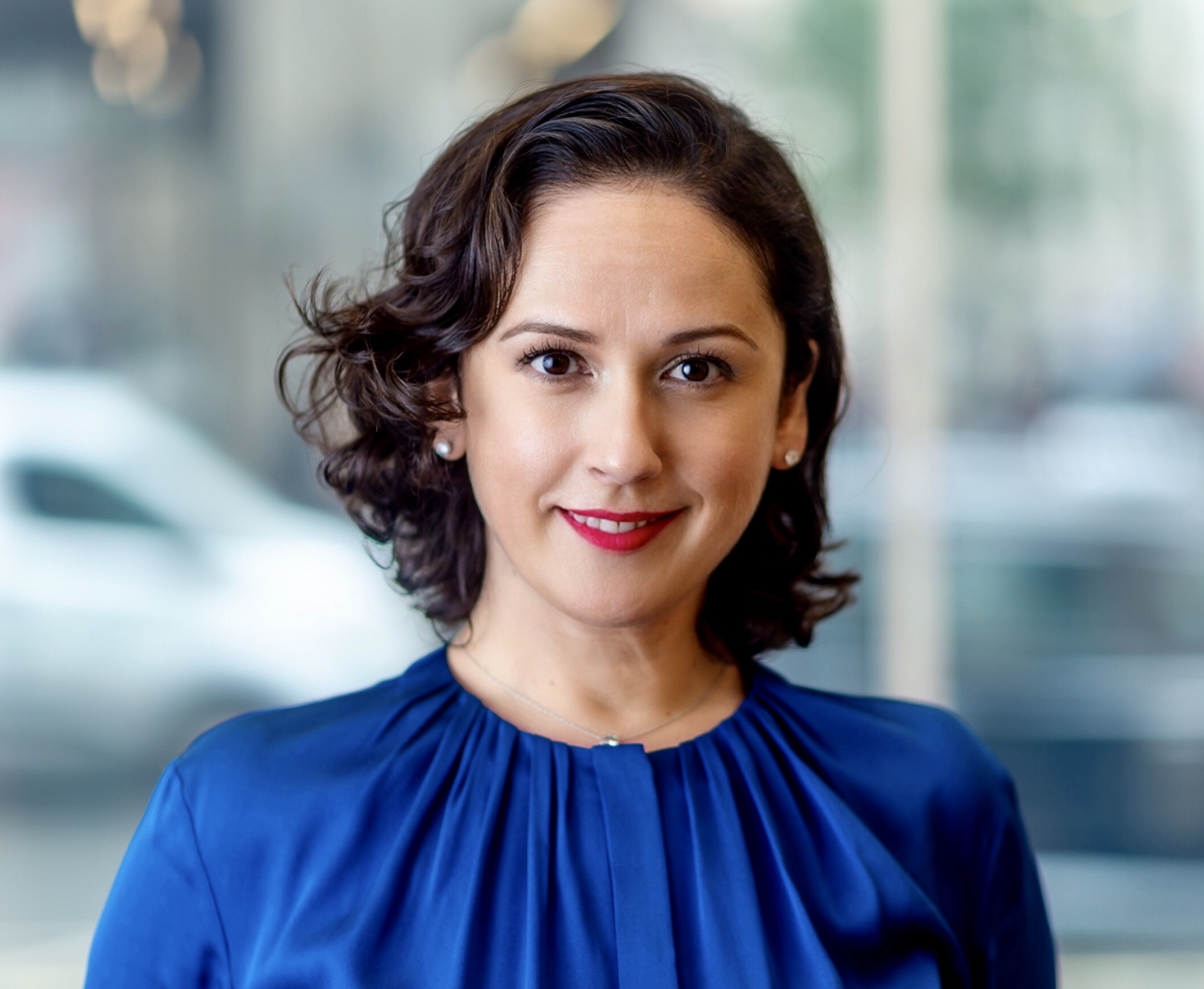
Magda Long
Magda Long is a PhD Candidate at the War Studies department at King’s College
London (KCL). She holds an MA in Intelligence and International Security from KCL
and a BA in Politics from Durham University. Ms. Long’s doctoral research focuses
on the limits and utility of U.S. covert action as a foreign policy and national security
tool in the post-Cold War world. The primary objective of her research is to explore
how political, security, and technology landscape changes helped shape the utility of
U.S. covert action in the post-Cold War era. Prior to her academic career, Ms. Long
was a Defense and Security Analyst at RAND Corporation in Europe. She also
worked as a Senior Manager at Deloitte in the U.S. in risk management and business
intelligence roles. Her other professional experience includes working with
international organizations in conflict and post-conflict societies on issues related to
security, fraud, and corruption.
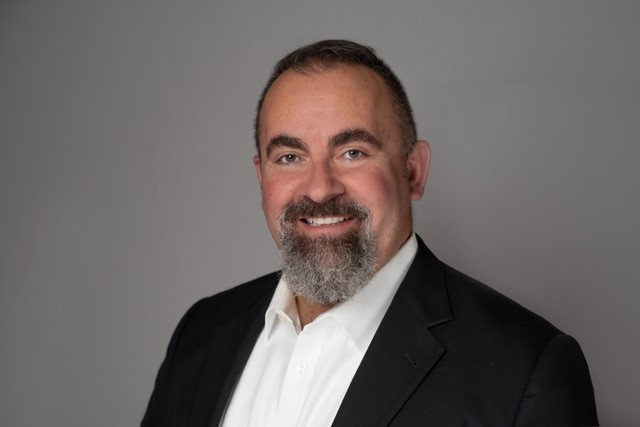
Marc Polymeropolous
Marc Polymeropoulos worked for 26 years at the CIA before retiring in July 2019 at the Senior Intelligence Service level. He was one of CIA’s most highly decorated operations officers who served in multiple field assignments for the U.S. government. He specialized in counterterrorism, the Middle East and South Asia, including extensive time in Iraq and Afghanistan. Prior to his retirement, Marc served at CIA headquarters and was in charge of CIA’s clandestine operations in Europe and Eurasia. He frequently comments on international events in the US media, to include the Washington Post, Fox News, The New York Times, GQ, Yahoo, CNN, and MSNBC. He also writes a weekly column on intelligence as a Washington Examiner contributor. Marc is the author of the book “Clarity in Crisis: Leadership Lessons from the CIA,” published in June 2021 by Harper Collins.
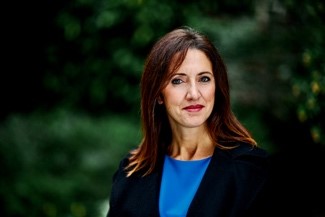
Mariarosaria Taddeo
Mariarosaria Taddeo is Associate Professor and Senior Research Fellow at the Oxford Internet Institute, University of Oxford, and is Faculty Fellow and Defence Science and Technology Fellow at the Alan Turing Institute.
Her recent work focuses mainly on the ethical analysis of Artificial Intelligence, cyber security , cyber conflicts, and ethics of digital innovation. Her area of expertise is Philosophy and Ethics of Information, although she has worked on issues concerning Epistemology, Logic, and Philosophy of AI. She has received multiple award for her work, among which the 2010 Simon Award for Outstanding Research in Computing and Philosophy; the 2016 World Technology Award for Ethics. In 2018, InspiringFifty named her among the most inspiring 50 Italian women working in technology. In the same year, ORBIT listed her among the top 100 women working on Ethics of AI in the world. She has been named one of the twelve 2020 "Outstanding Rising Talents" by the Womens' Forum for Economy and Society.
Since 2016, Taddeo serves as editor-in-chief of Minds & Machines (SpringerNature) and of Philosophical Studies Series (SpringerNature). She is also a member of the Exploratory Team on Operational Ethics, established under the auspices of the Human Factors and Medicine (HFM) panel of the NATO Science and Technology Organization. Her research has been published in major journals like Nature, Nature Machine Intelligence, Science, and Science Robotics. As of 2021, Professor Taddeo is the non-executive president of Noovle Spa, an Italian cloud enabler and part of TIM group.
Mark Grzegorzewski
Dr. Mark Grzegorzewski is a Resident Senior Fellow in the Department of Strategic Studies at Joint Special Operations University (JSOU) where is currently focused on researching cyberspace operations and artificial intelligence. He has recently published pieces in Special Operations Journal on “Demystifying Artificial Intelligence through DoD Education” and a chapter in an edited volume titled “Russian Cyber Operations: the relationship between the State and cyber criminals.” Moreover, he created JSOU’s “Quick Look” series with a publication Artificial Intelligence. He has a forthcoming “Quick Look” on Cryptocurrency. Dr. Grzegorzewski holds a Ph.D., M.A., and B.A. in Political Science from the University of South Florida, along with a graduate certificate in Globalization Studies.
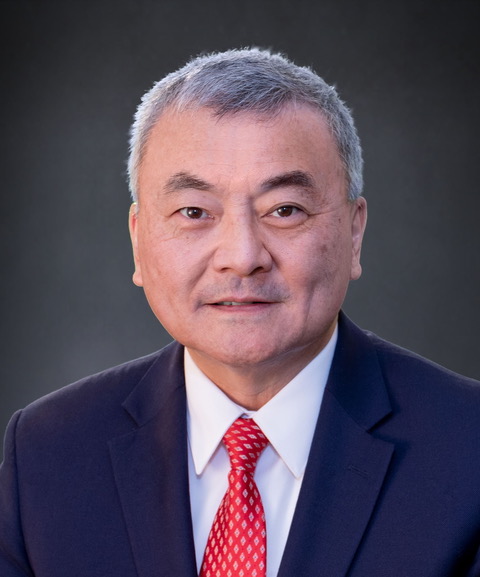
Mike Nagata
Lieutenant General (Retired) Michael K. Nagata served in the U.S. Army from February 1981 to August 2019. Today he works as a Strategic Advisor and Senior Vice President for CACI International, and is a Distinguished Senior Fellow for the Middle East Institute, and is affiliated with several other DC-based Think-Tanks.
His military career spanned 38 years of active Army service; including 34 years serving in US Special Operations Forces. His final government position was Director of Strategic Operational Planning for the U.S. National Counterterrorism Center from 2016 to 2019.
During his career, LTG(R) Nagata deployed in multiple Contingency and Combat special operations and campaigns across three continents, including East and North Africa, the Middle East, and Levant, and Central and South Asia; predominantly in the Counterterrorism & Counterinsurgency arenas. He also served in both Strategy and Policy positions in the Office of the Secretary of Defense, the Joint Staff, two assignments in the U.S. Intelligence Community, and extensive service at US Diplomatic posts abroad.
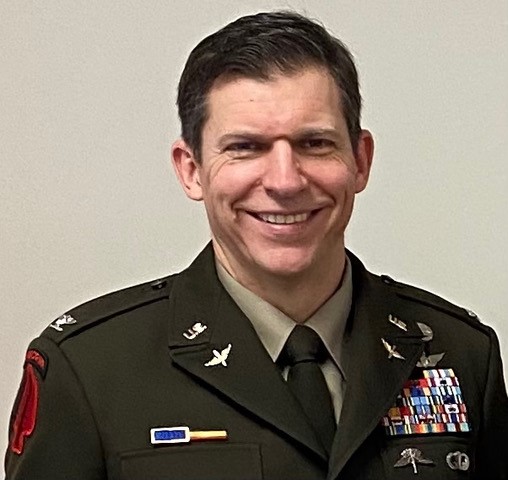
Mike Obadal
Mike
is a career Army officer currently detailed to the Intelligence Community. He
entered the US Army from the Virginia Military Institute in 1996 with a degree
in International Studies. He served in overseas and stateside posts as an
attack helicopter officer until 2003 when he was assigned to the US Army
Special Operations Command.
From 2003-2016 he served as an operations officer, liaison officer, J3 and Commander of both Aviation and Joint Special Operations Task Forces. In 2018 he completed a Counterterrorism Fellowship at the College of International Security Affairs. From 2018 to 2020, he commanded JSOC’s Joint Interagency Task Force, National Capital Region, and an overseas multi-national task force. Mike has served in Iraq, Afghanistan, East and West Africa, and other Middle East countries.
Mike holds degrees from the Naval War College and the National Defense University. He is rated in nine aircraft and accumulated 3000 flight hours over a 25 year career.
Mike is married to Christine, a former Army officer. They have three boys, Alex, Chris and Jon.
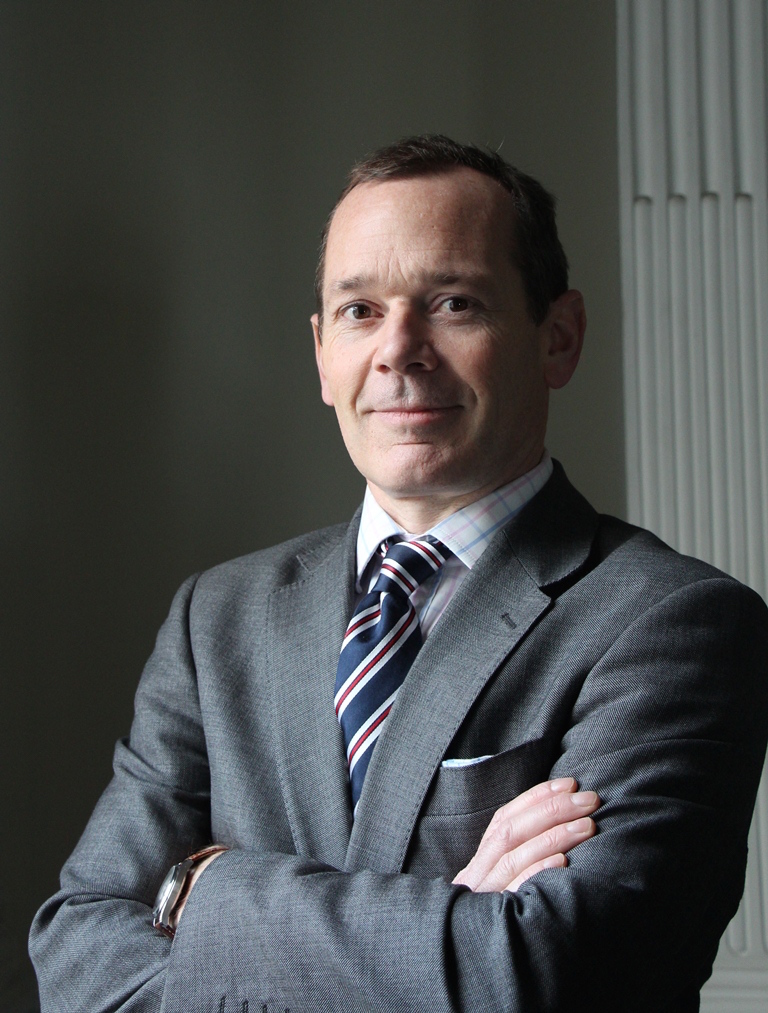
Peter Roberts
Peter is Director of Military Sciences at the Royal United Services Institute in London. He researches and publishes on strategy and philosophy, contemporary war, military doctrine and thinking, command and control, C4ISR, professional military education, disruptive warfare techniques, and adversarial approaches. Before joining the think-tank world, Peter served for more than 20 years in the UK military, serving all over the world in ops, intel, and capability development. Without a first degree, he fought through a PhD just before leaving the military and now enjoys disruptive thinking – although he constantly suffers from imposter syndrome. Peter is the host of RUSI’s podcast series, The Western Way of War, and is always surprised at the guests he gets to talk to and the popularity of the show.
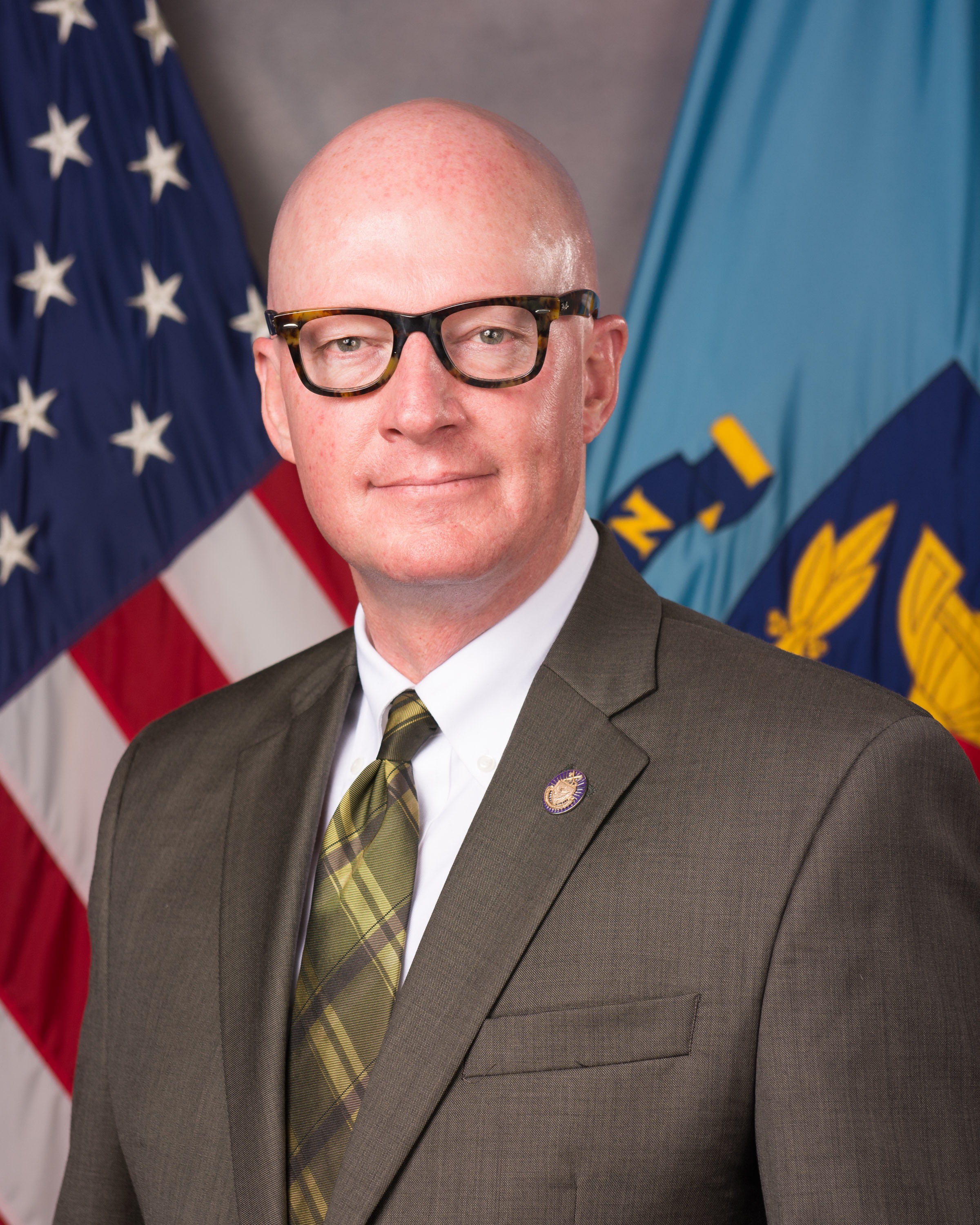
R E Burnett
R.E. Burnett is Dean of Faculty and
Academics and Professor of International Security Studies at National Defense
University. He is an analyst and theoretician in the field of emerging
technologies who has been a featured speaker and researcher to the National
Intelligence Council’s RDAWG science and technology committee. In 2018, Dr.
Burnett was the plenary speaker on Artificial Intelligence to the NATO Center
for Excellence at CYCON X in Tallinn, Estonia and in 2015, Dr. Burnett was
invited by the Australian Department of Defence’s Defence Science and
Technology Organization (DSTO) to give the Keynote Lecture on Humans and
Autonomous Systems to the Emerging Disruptive Technologies Assessment Symposium
at the University of New South Wales in Sydney, Australia. His recent
publications include a chapter on UAVs and ubiquitous networks in Command and
Control: Tools, Systems, and New Dimensions, Lexington/Rowan Books, 2015 and
his work on the evolution of human-machine symbiosis for advanced situational
awareness in intelligence and combat spaces was featured in the IEEE Technology
& Society Magazine and Homeland Security Review in 2013. Dr. Burnett has
conducted research and analysis for the National Intelligence Council, the
Institute for Defense Analyses, the Joint Military Intelligence College, and
the Homeland Security and National Defense Education Consortium. He has also
been an active defense community expert in the UAV policy community through the
IEEE society in the United States and Australia. Dr. Burnett has previously
been professor at Virginia Military Institute (2005-2013), where he was also
Director of the Science and National Security Program in Washington, DC. He was
also Director of the VMI-National Defense University of Hungary International Exchange
Seminar in Budapest, in which he has taught for the last seven summers. In
2003, at VMI, he held the Moody-Northen Endowed Chair in Economics and was also
the 2007 & 2009 winner of the Hinman Award for Excellence in Research. From
2000 to 2005, Dr. Burnett was Associate Professor of Integrated Science &
Technology at James Madison University, where he was awarded the Most
Captivating Lecturer Award in 2005. From 1993 to 2000 he was Assistant Director
and Assistant Professor of the Patterson School of Diplomacy &
International Commerce.
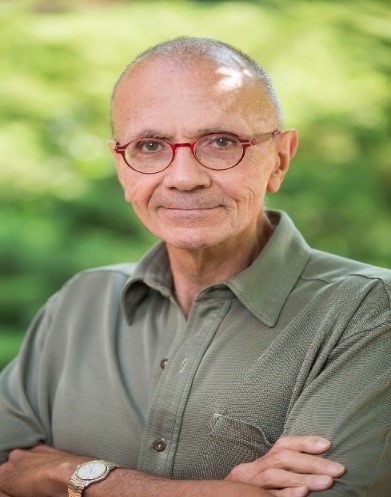
Richard Shultz
Richard H. Shultz, Jr. is the Shelby Cullom Davis Professor of International Security Studies at the Fletcher School, Tufts University. He teaches graduate-level courses on various aspects of international security affairs to include: the role of force in international politics; internal conflict and irregular war; special operations strategies for responding to irregular warfare challenges; origins, conduct, and termination of war; intelligence and national security; and crisis management.
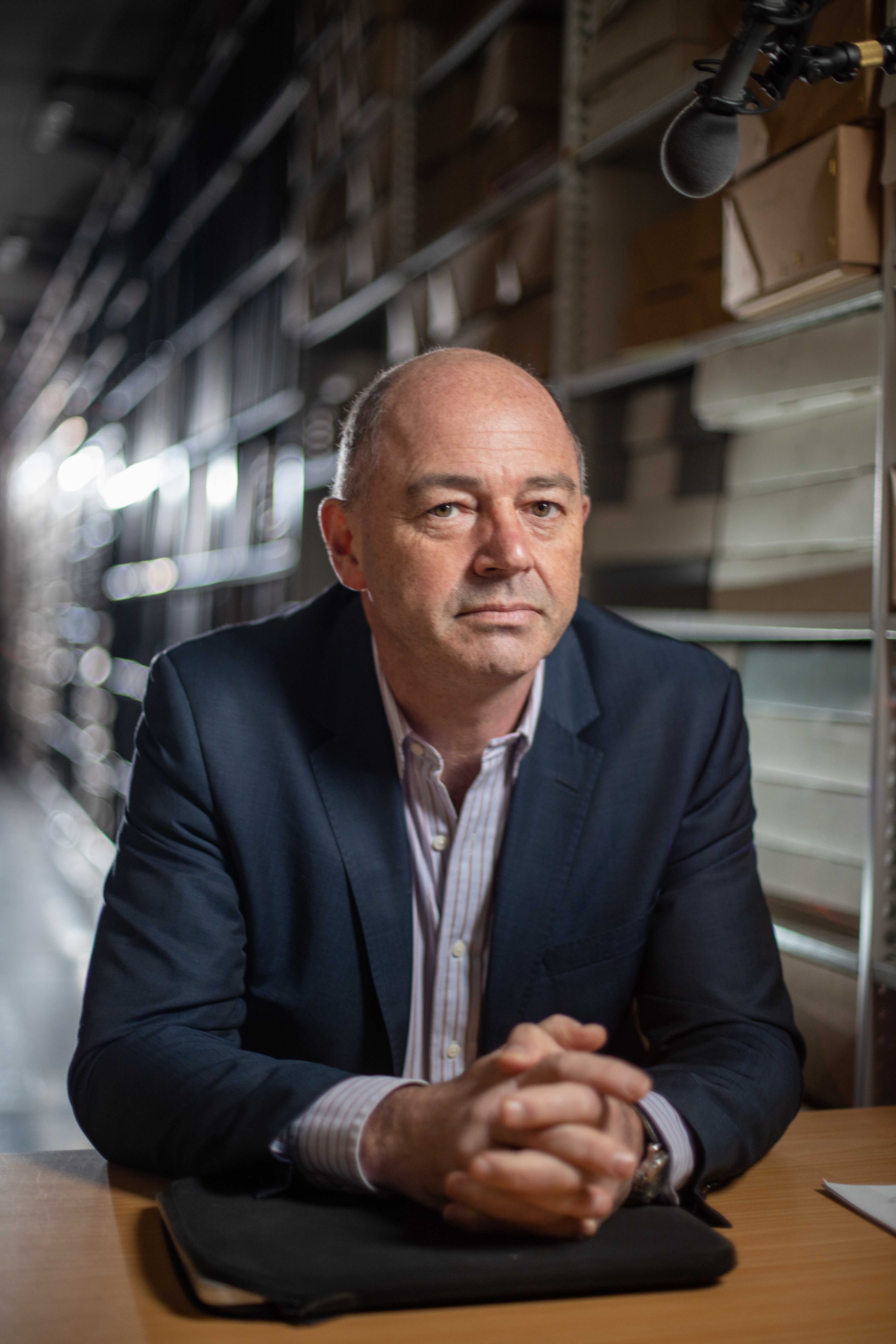
Richard Aldrich
Richard Aldrich is Professor of International Security at the University of Warwick and a Fellow of the Royal Historical Society. His books include The Black Door (2016) and GCHQ (2019). He is currently completing a guide to Cybersecurity and Digital Politics for OUP. He recently completed a Leverhulme major research fellowship investigating the changing nature of secrecy. His articles have appeared in International Affairs, Foreign Affairs, Foreign Policy and Studies in Intelligence. He is an adviser to various parts of the UK government and assisted the German Parliament with its security enquiries. He is currently involved with H2020 and ERC projects in Europe.
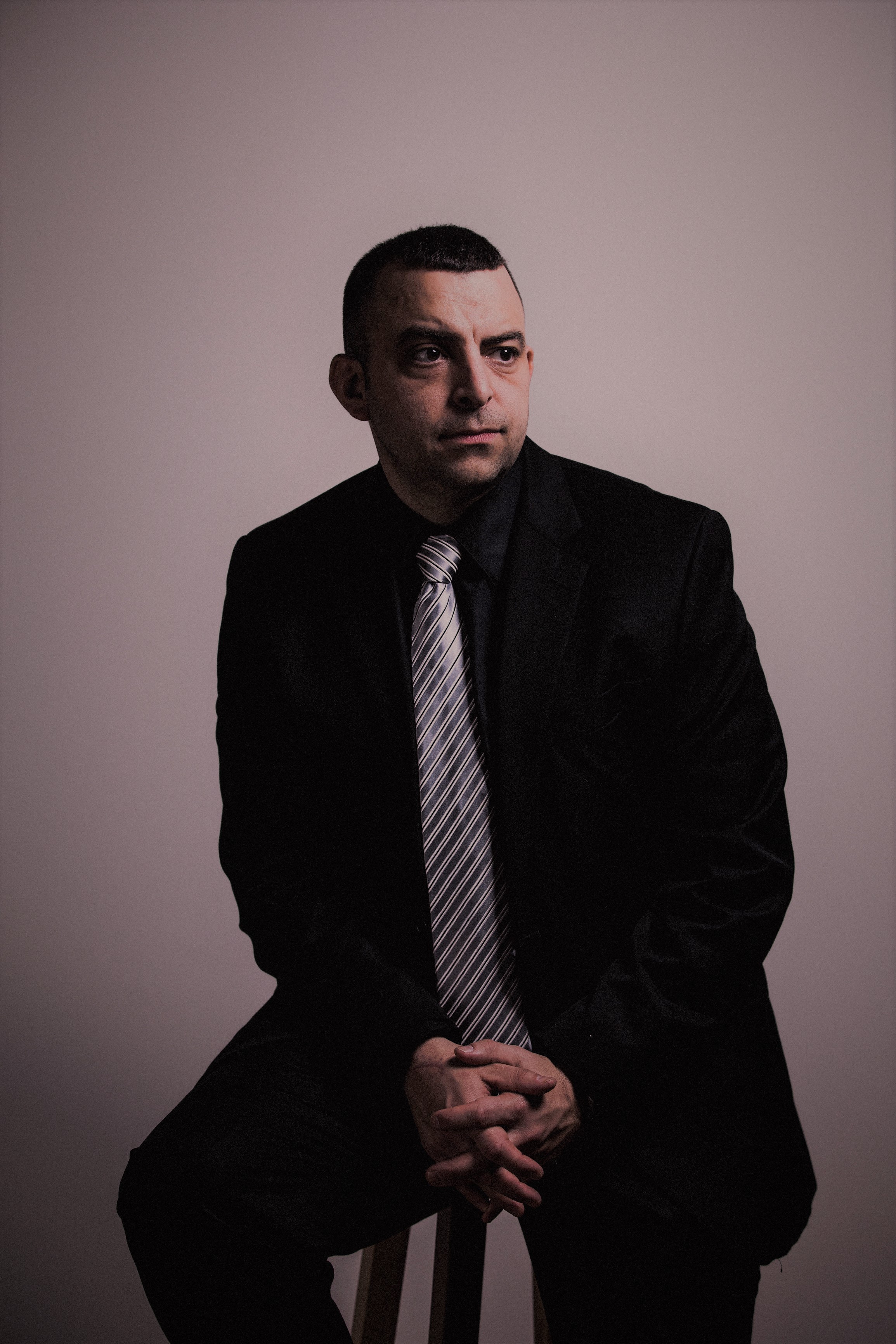
Scott Smitson
Dr. Scott Smitson, is a retired Army Strategist who most recently served in the U.S. Southern Command (SOUTHCOM) J5 as the Strategy Branch Chief. He previously served in the Joint Staff J8, responsible for overseeing numerous efforts related to Global Integration, and was the Director of the Chairman’s Net Assessment on Iran. From 2014-2016 he was a member of the US CENTCOM Commander’s Action Group (CAG), where he served as a Strategic Advisor for key theater-strategic issues and initiatives. His operational experiences include deployments in support of Operations Southern Watch and Iraqi Freedom, service as the UN Commander’s representative for Armistice issues in the Korean DMZ, and Company Command in 2nd Infantry Division. From 2013-2014, he was a Council on Foreign Relations International Affairs Fellow (CFR IAF) where he served as a US-UK Strategic Planner in the United Kingdom Ministry of Defence.
Dr. Smitson served as an Assistant Professor in the Department of Social Sciences at the United States Military Academy from 2010-2013, and was an Adjunct Professor at Georgetown University’s Security Studies Program in the Edmund A. Walsh School of Foreign Service. He has also taught at the University of Miami, Florida International University, and the Ohio State University. Dr. Smitson earned a Joint PhD in Political Science and Public Policy from Indiana University’s School of Environmental and Public Affairs (SPEA) as well as a MA in Political Science. He was a Distinguished Military Graduate at the Ohio State University. His publications include The Road to Good Intentions: British Nation-Building in Aden, “An American in Her Majesty’s Ministry of Defence” (War on the Rocks), “Solving America's Gray-Zone Puzzle” (Parameters), “After Mosul: Enlarging the Context of the Syria-Iraq Conflict(s)” (New America), and “The Compound Security Dilemma: Threats at the Nexus of War and Peace” (Parameters).
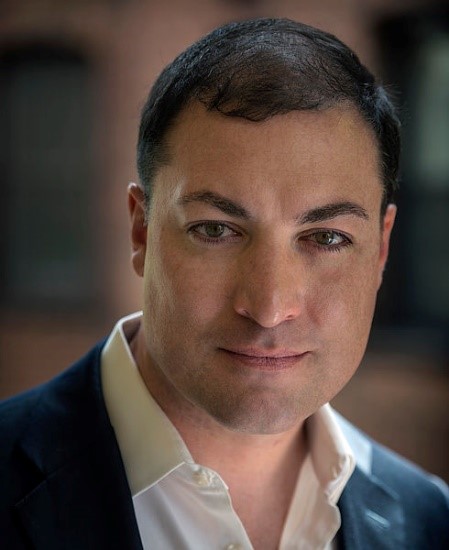
Sean McFate
Dr. Sean McFate is a Senior Fellow at the Atlantic Council, a Washington DC think tank, and a professor at: Georgetown University’s School of Foreign Service, Syracuse University's Maxwell School, and the National Defense University. His career began as an officer and paratrooper in the U.S. Army’s 82nd Airborne Division, and then he became an international private military contractor. His book The New Rules of War: How America Can Win—Against Russia, China, and Other Threats has been translated into nine languages, and was named a “Book of the Year” by The Economist and is included on West Point’s “Commandant’s Reading List.” McFate also writes novels based on his own paramilitary experiences. His latest thriller is High Treason, and #1 New York Times bestselling author James Patterson said: “Sean McFate just might be the next Tom Clancy, only I think he’s even better.” McFate has written for the New York Times, Washington Post, The Atlantic, Foreign Policy, War on the Rocks, and similar outlets. He has appeared on CNN’s Amanpour, Morning Joe, Fox and Friends, NPR, BBC, Vice/HBO, and The Discovery Channel. McFate holds a BA from Brown University, MPP from the Harvard Kennedy School of Government, and a Ph.D. in international relations from the London School of Economics and Political Science (LSE). More: www.seanmcfate.com
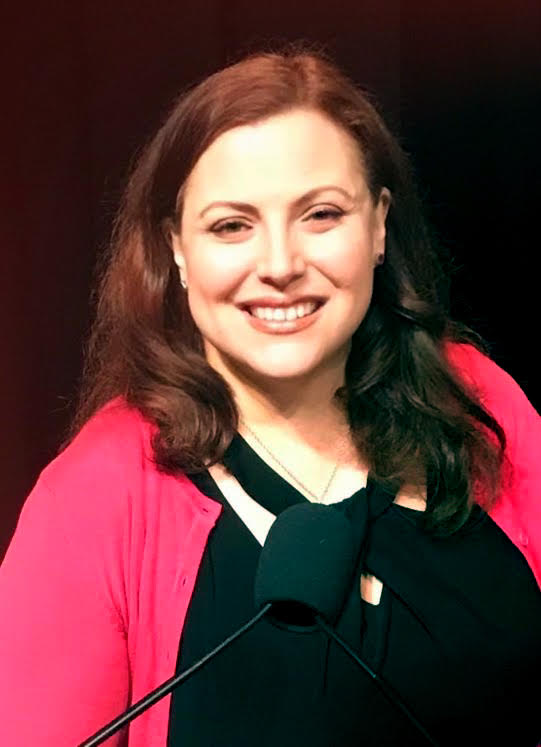
Shannon French
Prof. Shannon French is the Inamori Professor in Ethics at Case Western Reserve University (CWRU) where she teaches for the department of Philosophy and the School of Law and the CGSC Foundation’s General Hugh Shelton Distinguished Chair of Ethics. Prior to coming to CWRU in 2008, she taught military ethics for 11 years at the US Naval Academy in the division of Leadership, Ethics, and Law. At CWRU she is the Director of the Inamori International Center for Ethics and Excellence. Her primary field is military ethics, with special focus on conduct of war issues, ethical leadership, command climate, warrior transitions, ethical responses to terrorism, the future of warfare, and military applications of emerging technology. Other research interests include business, corporate, and organizational ethics, meta-ethics, moral psychology, neuroethics, and ethics and technology (including AI ethics). She is editor-in-chief of the International Journal of Ethical Leadership, associate editor for the Journal of Military Ethics, an editorial board member for the Journal of Character and Leadership Integration and the Texas National Security Review and an active member of the European Chapter of the International Society for Military Ethics. Her publications include The Code of the Warrior: Exploring Warrior Values, Past and Present, now in its second edition (Rowman & Littlefield, 2017), edited volumes on military ethics, and many book chapters and scholarly articles, with recent titles ranging from “Artificial Intelligence in Military Decision-Making: Avoiding Ethical and Strategic Perils with an Option-Generator Model” to “Neuroethics, Dehumanization, and the Prevention of Moral Injury” to “Military Neuro-Interventions: Solving the Right Problems for Ethical Outcomes” to “Strategic Dissent in the Military.” She has presented her work at prestigious military and civilian academic events all around the globe and in 2019 was a distinguished speaker at the British government’s official commemoration of the 70th anniversary of the signing of the Geneva Conventions.
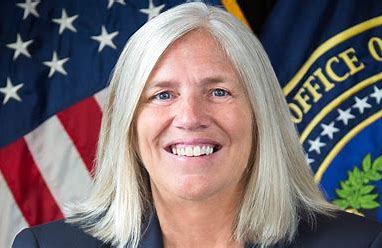
Sue Gordon
Sue Gordon was the fifth Principal Deputy Director of National
Intelligence at the Office of the Director of National Intelligence (DNI) from
August 2017 to August 2019. As PDDNI, Sue was a key advisor to the President
and National Security Council and led the 17-member Intelligence Community.
With more than three decades of experience in the IC, Sue has served in a
variety of leadership roles spanning numerous intelligence organizations and
disciplines. Prior to the DNI, Sue served as the Deputy Director of the
National Geospatial-Intelligence Agency from 2015 to 2017, helping the director
lead the agency and manage the National System of Geospatial Intelligence.
Before joining the NGA, she served for 27 years at the Central
Intelligence Agency, rising to senior executive positions in each of the
Agency’s four directorates: operations, analysis, science and technology, and
support. In 1998, she designed and drove the formation of In-Q-Tel, a private,
non-profit company whose primary purpose is to deliver innovative technology
solutions for the agency and the IC. She is the recipient of numerous
government and industry awards, including the Distinguished Intelligence Medal
and the Distinguished Presidential Rank Award. Sue earned a Bachelor of
Science from Duke University. A trusted authority on strategy, innovation and
leadership, Sue is currently a consultant on global risk, technology, cyber and
space issues and a member of the Board at Pallas Advisors, a Washington
D.C.-based consultancy.
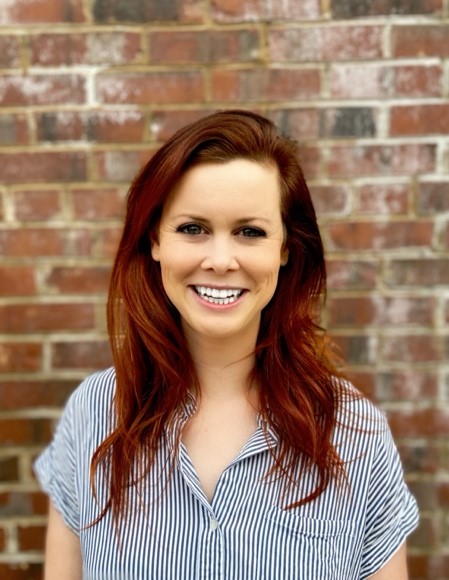
Tess deBlanc-Knowles
Tess serves as Policy Advisor to the National AI Initiative Office of the White House Office of Science and Technology Policy (OSTP). She is detailed to OSTP from the National Security Commission on Artificial Intelligence (NSCAI), where she led the Commission’s line of effort focused on maintaining U.S. leadership in AI research and development. Congress established NSCAI in 2019 with the mandate to make recommendations related to the methods and means necessary to advance the development of artificial intelligence, machine learning, and associated technologies to comprehensively address the national security and defense needs of the United States.
Prior to joining NSCAI, Tess was the Chief of Staff at the Atlantic Council, a Washington, DC--based foreign policy think tank. Tess has a background in defense policy. She worked at U.S. Special Operations Command on the operational planning team that established the command’s first international liaison division, and helped build and execute the command’s international engagement strategy. She also spent time in the Office of the Deputy Assistant Secretary of Defense for Countering Weapons of Mass Destruction and at National Defense University.
Tess earned a BA in International Studies and a minor in Arabic from Washington University in St. Louis and an MA in Security Studies from Georgetown University.
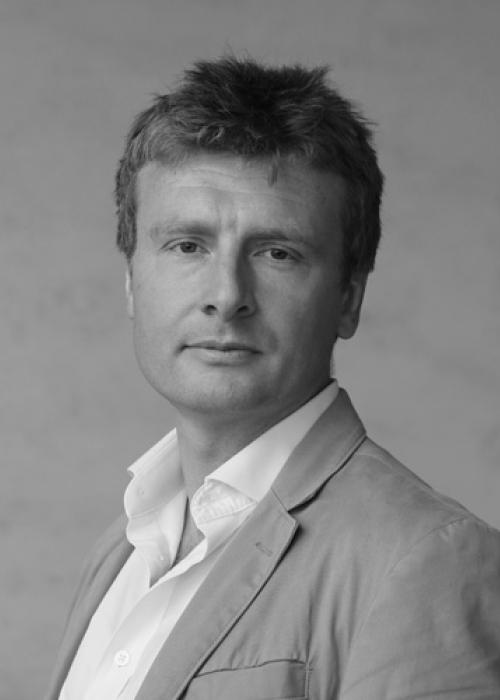
Tom Simpson
Tom Simpson is Associate Professor of Philosophy and Public Policy at the Blavatnik School of Government, University of Oxford, and a Senior Research Fellow at Wadham College. He works particularly on trust, and issues at the intersection of technology and security. For an overview of his research, see this broadcast with ABC. He joined the School from Cambridge, where he was a Research Fellow at Sidney Sussex College, and was also educated (BA, MPhil, PhD). Between degrees he was an officer with the Royal Marines Commandos for 5 years. He served in Northern Ireland; Baghdad, Iraq; and Helmand Province, Afghanistan. The academic life is undoubtedly a privilege, but he remains conflicted about its sedentary nature.

Tony Pfaff
DR. C. ANTHONY PFAFF (Colonel, U.S. Army, Ret.) is
currently the research professor for Strategy, the Military Profession and
Ethic at the Strategic Studies Institute and a Senior Non-resident Fellow at
the Atlantic Council. In this capacity, he has written extensively on military
professional ethics. A retired Army foreign area officer for the Middle East
and North Africa, Dr. Pfaff served as Director for Iraq on the National
Security Council Staff. His last active duty posting was Senior Army and Military
Advisor to the State Department from 2013-2016, where he served on the Policy
Planning Staff advising on cyber, regional military affairs, and the Middle
East. Prior to taking the State Department position, he served as the Defense
Attaché in Baghdad, the Chief of International Military Affairs for US Army
Central Command, and as the Defense Attaché in Kuwait. He served twice in
Operation IRAQI FREEDOM, once as the Deputy Chief of Intelligence for a Joint
Special Operations Task Force and as the Senior Military Advisor for the
Civilian Police Assistance Training Team. He also served as the Senior
Intelligence Officer on the Iraq Intelligence Task Force and as a UN observer
along the Iraq-Kuwait border. Dr. Pfaff has a bachelor’s degree in Philosophy and
Economics from Washington and Lee University; a master’s degree in Philosophy
from Stanford University, with a concentration in Philosophy of Science; a
master’s in National Resource Management from the Industrial College of the
Armed Forces; and a Doctorate in Philosophy from Georgetown University.
Compound Security as a Theory of Next: Part 1
Compound Security as a Theory of Next with Dr. Isaiah “Ike” Wilson III (Part 1 of 4) Join Dr. Ike Wilson in an exciting discussion that explores the relationship between compound security and the security needs of the future. This is the first of four installments. The opinions offered in this lecture are those of the presenters only and do not necessarily represent the views of any of the aforementioned organizations or parent institutions. Video footage provided by the JSOU multimedia team, Adobestock.com, iStock.com, shutterstock.com, Dvids.net, The National Archives, University of Texas Archives, and BTU.
Compound Security as a Theory of Next: Part 3
Join Dr. Ike Wilson in an exciting discussion that explores the implications of CSD on Future of SOF Utility. This is the third of four installments. The opinions offered in this lecture are those of the presenters only and do not necessarily represent the views of any of the aforementioned organizations or parent institutions. Video footage provided by the JSOU multimedia team, Adobestock.com, iStock.com, shutterstock.com, Dvidshub.net, The National Archives, University of Texas Archives, and BTU.
Compound Security as a Theory of Next: Part 2
Join Dr. Ike Wilson in an exciting discussion that explores, what is compound security? This is the second of four installments. The opinions offered in this lecture are those of the presenters only and do not necessarily represent the views of any of the aforementioned organizations or parent institutions. Video footage provided by the JSOU multimedia team, Adobestock.com, iStock.com, shutterstock.com, Dvids.net, The National Archives, University of Texas Archives, and BTU.
Dr. Tony Pfaff from Panel 2
JSOU SOF Q4 Forum 2021 - Dr. Tony Pfaff from Panel 2 - Day 1 - 8 September 2021.
Panel 2: Ethics, Leadership, and the 3rd Age of SOF presentation by: Dr. Tony Pfaff, U.S. Army War College
Opinions in this forum are those of the presenters and may not necessarily be the views of U.S. Government, Department of Defense, United States Special Operations Command, and the Joint Special Operations University.
Panel 3: SOF and the IC in GWOT
JSOU SOF Q4 Forum 2021 - Panel 2: SOF and the IC in GWOT - Day 1 - 8 September, 2021
Moderator: Ms. Magda Long, King’s College- London, JSOU
Panelists:
LTG(R) Dell Dailey, Dell Dailey and Family Consultants
Mr. Doug London, The Middle East Institute
Dr. Richard Shultz, The Fletcher School
Mr. Doug Wise, Southwest National Security Consultants
Opinions in this forum are those of the presenters and may not necessarily be the views of U.S. Government, Department of Defense, United States Special Operations Command, and the Joint Special Operations University.
Keynote Speaker: Ms. Sue Gordon, CACI International
SOU SOF Q4 Forum - Keynote Speaker: Ms. Sue Gordon, CACI International. Day 1, 8 September 2021.
Opinions in this forum are those of the presenters and may not necessarily be the views of U.S. Government, Department of Defense, United States Special Operations Command, and the Joint Special Operations University.
Compound Security as a Theory of Next: Part 4
Join Dr. Ike Wilson in an exciting discussion that explores the Implications of CSD for SOF. This is the last of four installments.
The opinions offered in this lecture are those of the presenters only and do not necessarily represent the views of any of the aforementioned organizations or parent institutions.
Video footage provided by the JSOU multimedia team, Adobestock.com, iStock.com, shutterstock.com, Dvidshub.net, The National Archives, University of Texas Archives, and BTU.
Panel 1: Technology and the Global War on Terror - Sense-making and Enabling Action
JSOU SOF Q4 Forum 2021 - Panel 1: Technology and the GWOT - Sensemaking and Enabling Action - Day 1 - 8 September, 2021
Moderator: Dr. Letitia Haynes
Panelists:
Dr. Richard Aldrich, University of Warwick
Dr. R.E. Burnett, College of Intl Sec Affairs
Mr. David Wigmore, College of Intl Sec Affairs
Dr. Peter Roberts, Royal United Services Institute-RUSI
Opinions in this forum are those of the presenters and may not necessarily be the views of U.S. Government, Department of Defense, United States Special Operations Command, and the Joint Special Operations University.
Panel 2: Ethics, Leadership, and the 3rd Age of SOF
JSOU SOF Q4 Forum 2021 - Panel 2: Ethics, Leadership, and the 3rd Age of SOF - Day 1 - 8 September, 2021 Moderator: Dr. Joe Long, JSOU Panelists: Mr. Marc Polymeropolous, Author / Speaker Dr. Thomas Simpson, University of Oxford Dr. Mariarosaria Taddeo, University of Oxford Dr. Tony Pfaff, U.S. Army War College Opinions in this forum are those of the presenters and may not necessarily be the views of U.S. Government, Department of Defense, United States Special Operations Command, and the Joint Special Operations University.
Panel 4: Emergent Tech and the Compound Security Environment
JSOU SOF Q4 Forum 2021 - Panel 4: Emergent Tech and the Compound Security Environment - Day 2 - 9 September, 2021
Moderator: Dr. Lydia Kostopoulous, JSOU
Panelists:
Ms. Tess deBlanc-Knowles, White House Office of Science and Tech Policy
Mr. Doowan Lee, Institute for Security and Technology
Dr. Sean McFate, College of International Security Affairs
Dr. Christopher Moran, The University of Warwick
Opinions in this forum are those of the presenters and may not necessarily be the views of U.S. Government, Department of Defense, United States Special Operations Command, and the Joint Special Operations University.
Panel 6: SOF/IC Partnership in the Compound Security Environment
JSOU SOF Q4 Forum 2021 - Panel 6: SOF/IC Partnership in the Compound Security Environment - Day 2 - 9 September, 2021 Moderator: Dr. Amanda Wenks-Butler, JSOU Panelists: Dr. David Ellis, JSOU LTG(R) Mike Nagata, CACI COL Mike Obadal, US Army Mr. Peter Cloutier Opinions in this forum are those of the presenters and may not necessarily be the views of U.S. Government, Department of Defense, United States Special Operations Command, and the Joint Special Operations University.
Peter Cloutier, USAID: Defense, Diplomacy and Development in the Compound Security Environment
Panel 6: Peter Cloutier: Defense, Diplomacy and Development in the Compound Security Environment
JSOU SOF Q4 Forum 2021 - Mr. Peter Cloutier from Panel 6 - Day 2 - 9 September 2021.
Panel 6: SOF/IC Partnership in the Compound Security Environment presentation by: Mr. Peter Cloutier
Opinions in this forum are those of the presenters and may not necessarily be the views of U.S. Government, Department of Defense, United States Special Operations Command, and the Joint Special Operations University.
